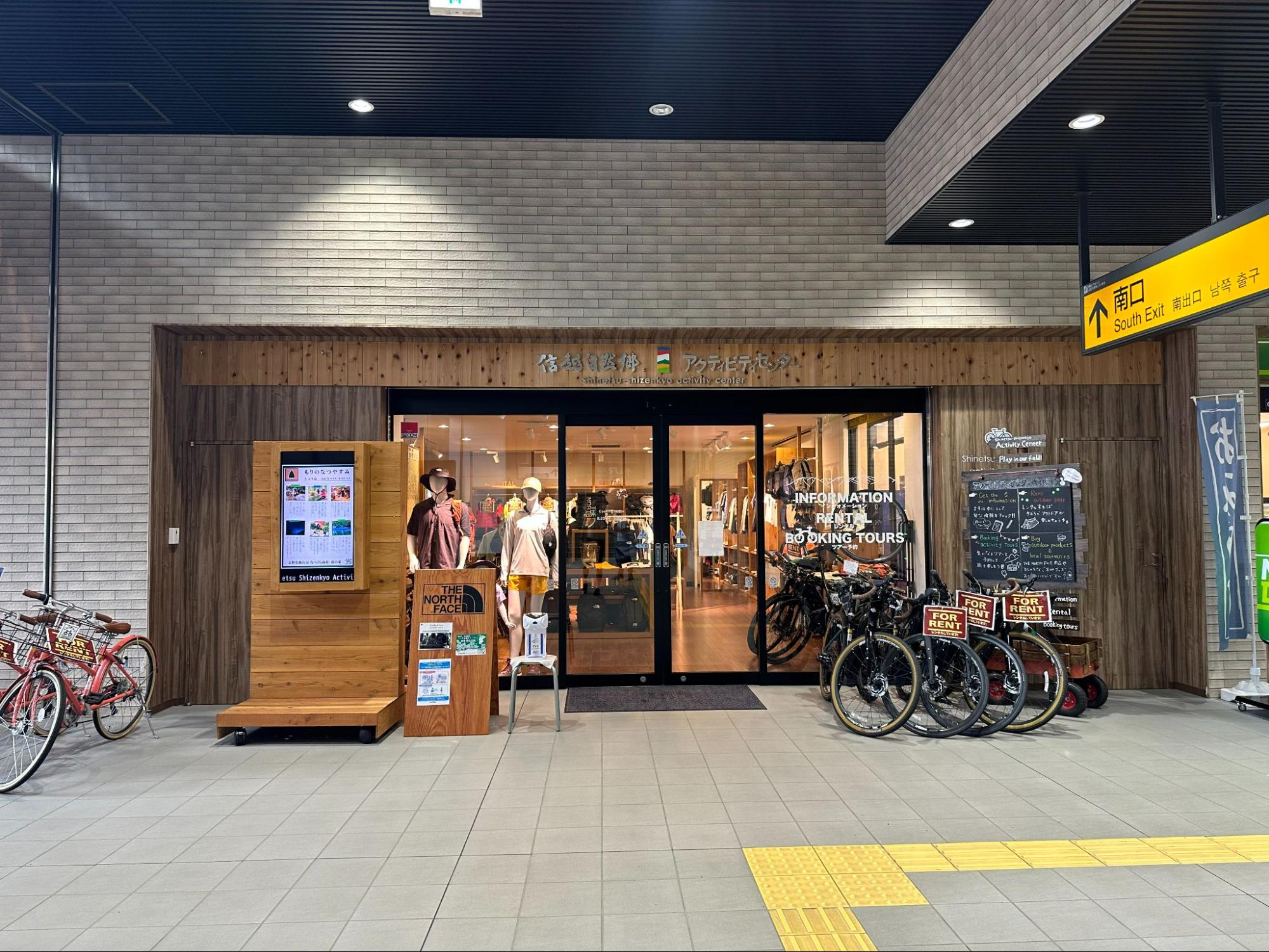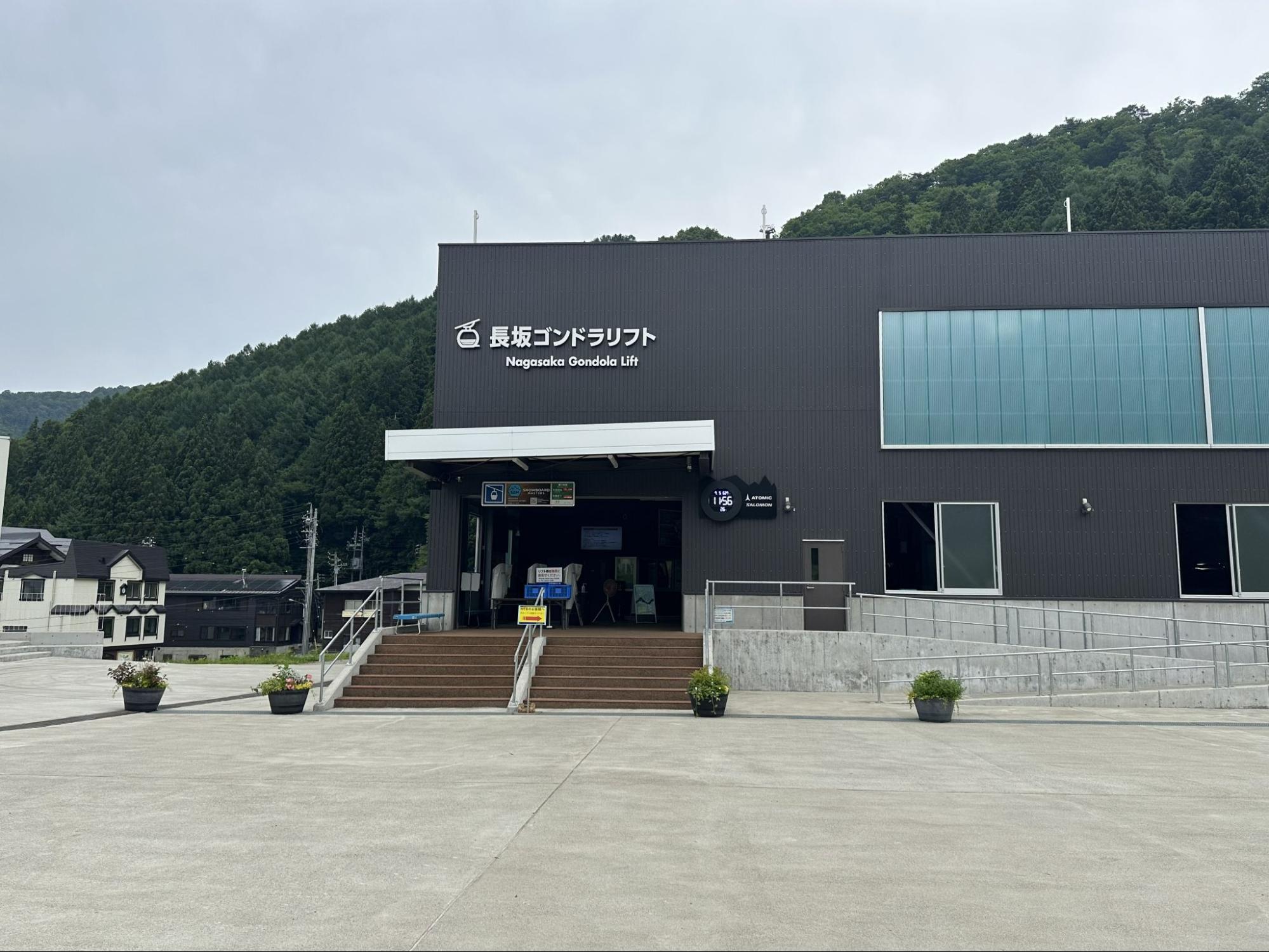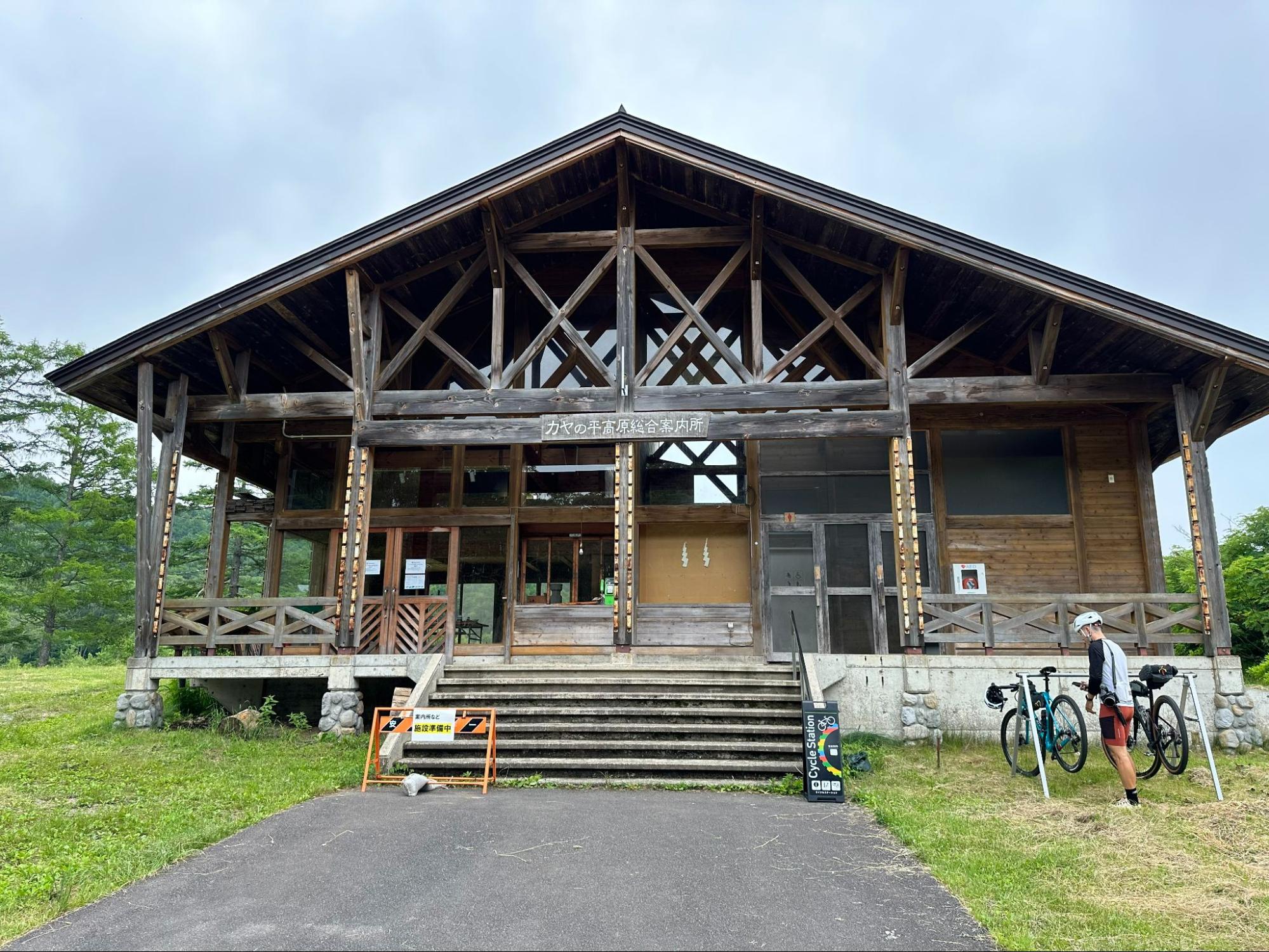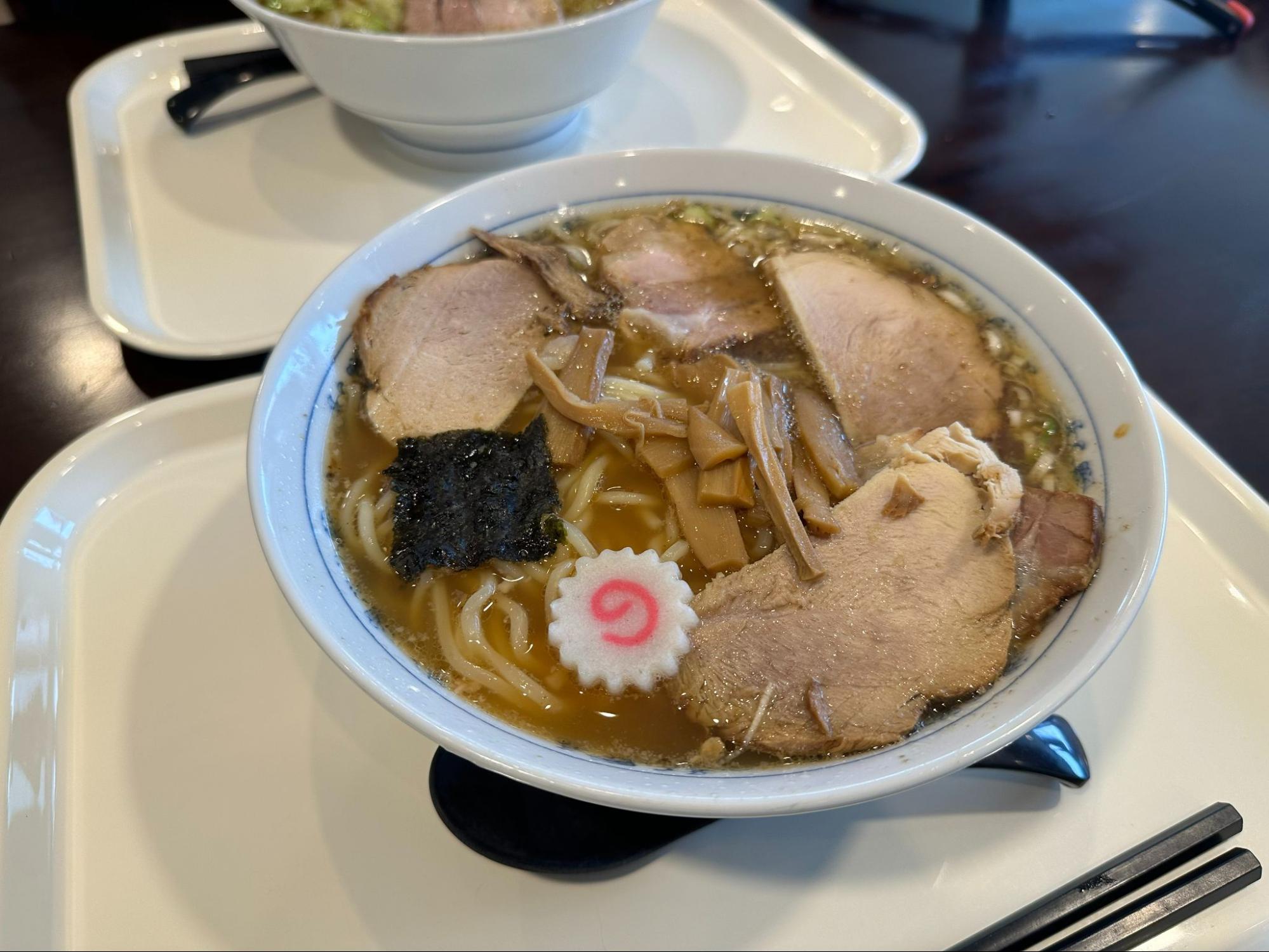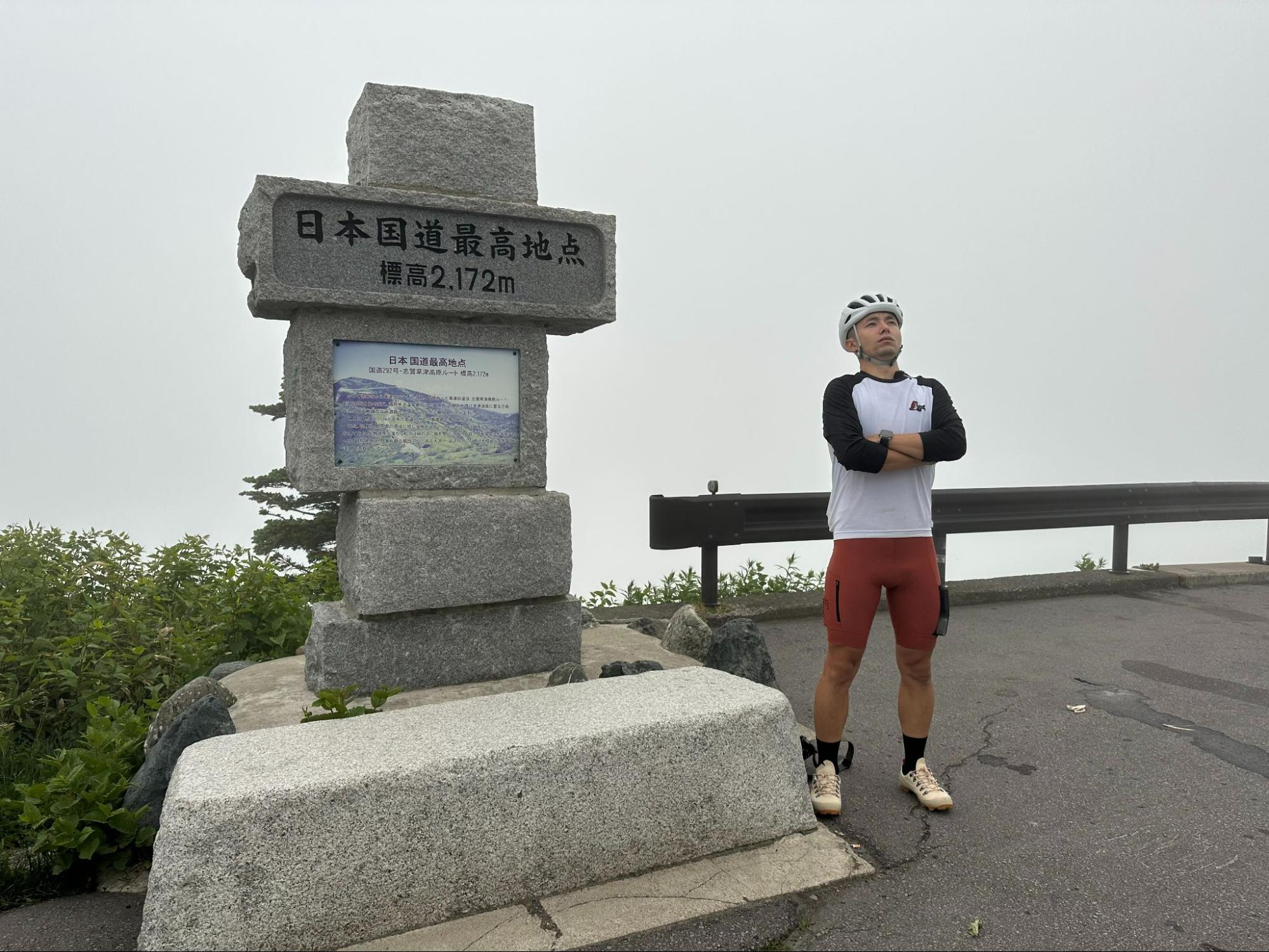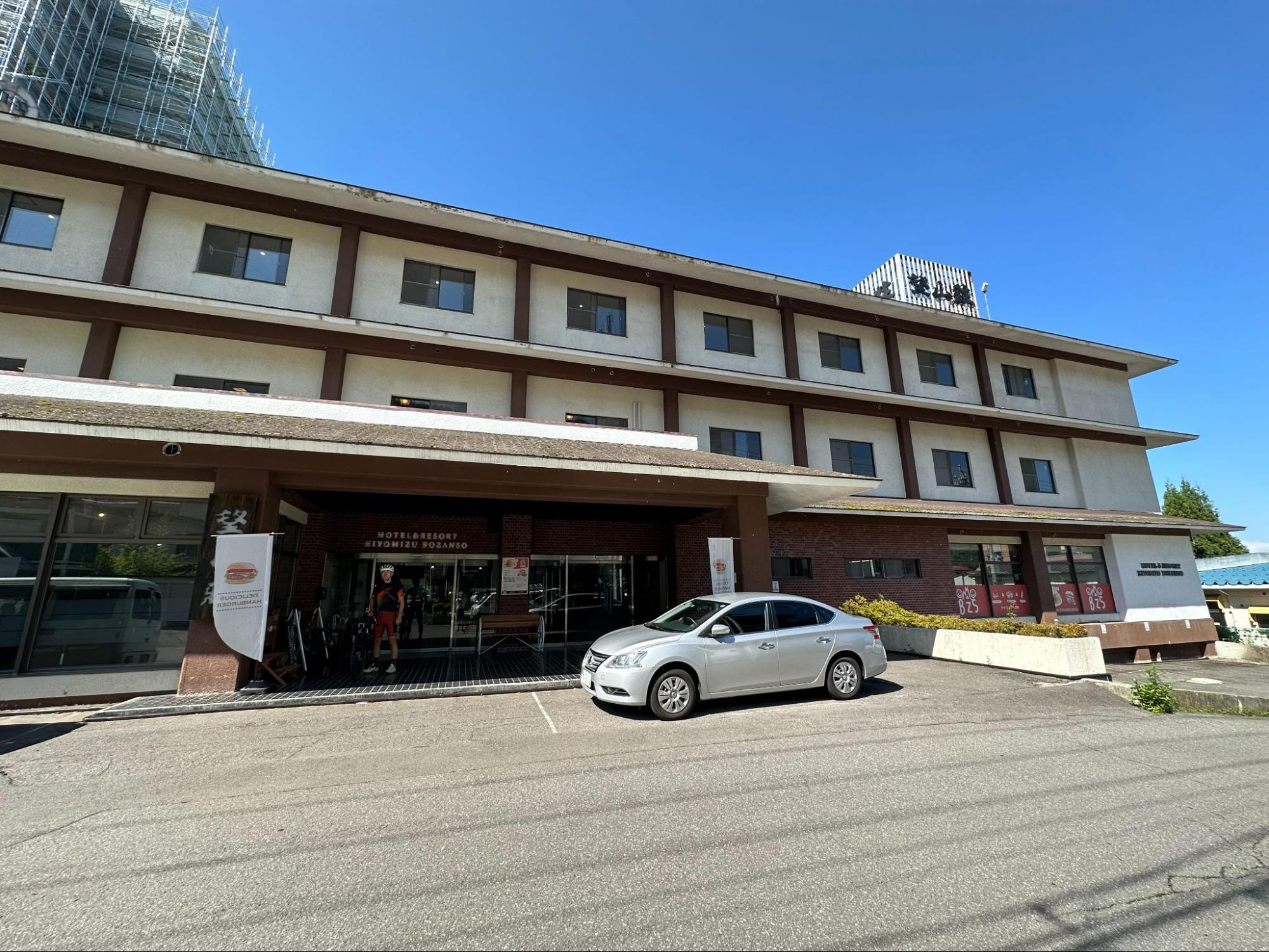Kenta-san's Travel Bookmarks
| 7:50 | Depart Tokyo Station on the Hokuriku Shinkansen |
|---|---|
| 9:45 | Arrive at Iiyama Station and assemble bicycles |
| 11:00 | Start ride from Iiyama Station |
| 11:40 | Rehydrate at "Hachiman Shimizu" spring water |
| 12:00 | Arrive at Nozawa Onsen ski resort (meet a support rider) |
| 12:10 | Board the gondola lift (Nagasaka Station) |
| 12:30 | Get off the gondola lift (Yamabiko Station) |
| 13:30 | Rest at Kayanodaira Kogen Campsite |
| 15:00 | Lunch at Shiga Kogen Mountain Station |
| 17:00 | Interrupt ride at Yokoteyama Drive-in |
| 17:45 | Resume ride from Shiga Kogen Mountain Station |
| 18:30 | Goal at Yudanaka Onsen |
DAY 1 is over!
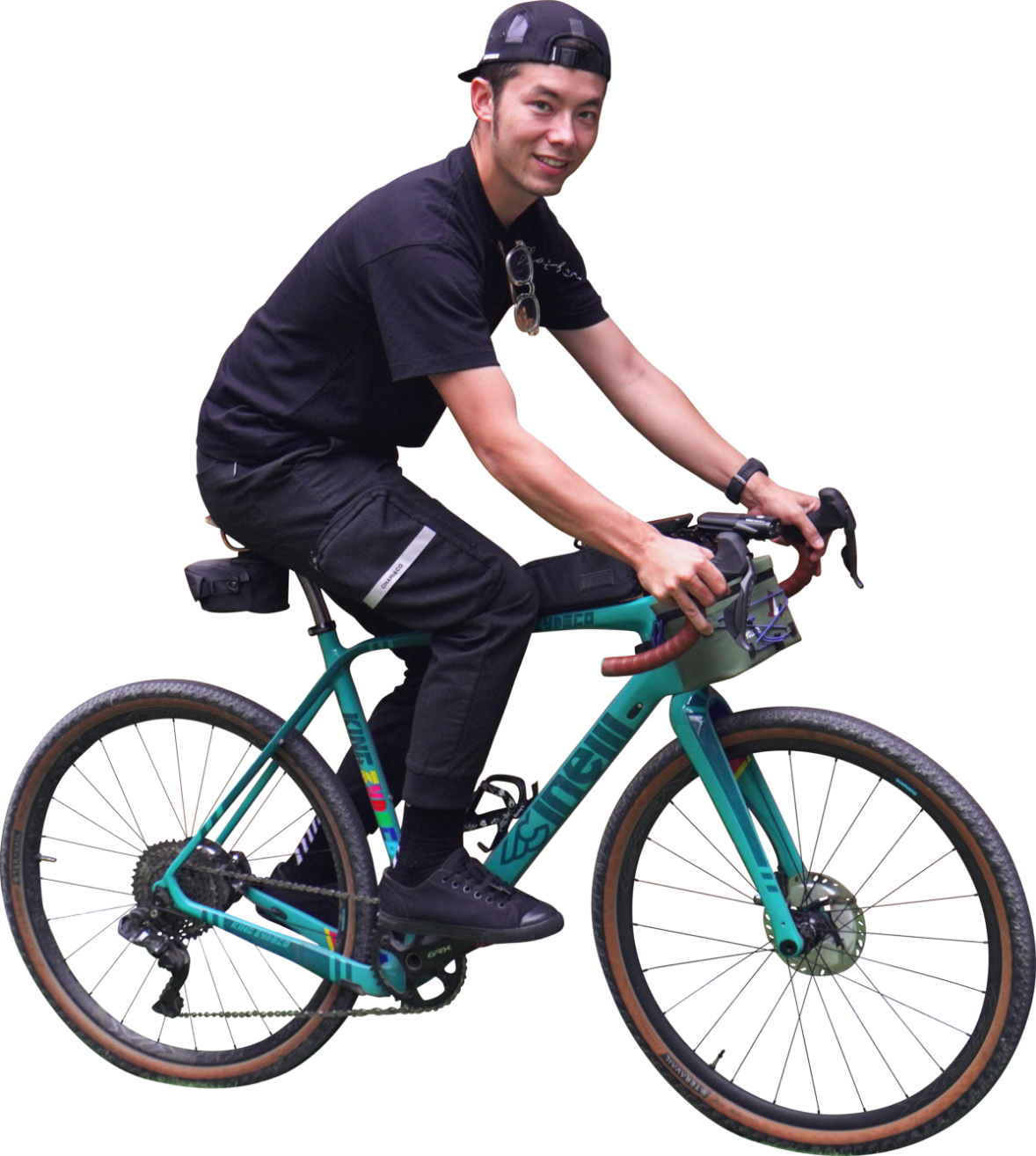

Arrival at Iiyama Station
It took about 2 hours from JR Tokyo Station to JR Iiyama Station by Hokuriku Shinkansen. It was very easy to get to Iiyama Station, the starting point of the tour, without changing trains since we were going by bicycle.
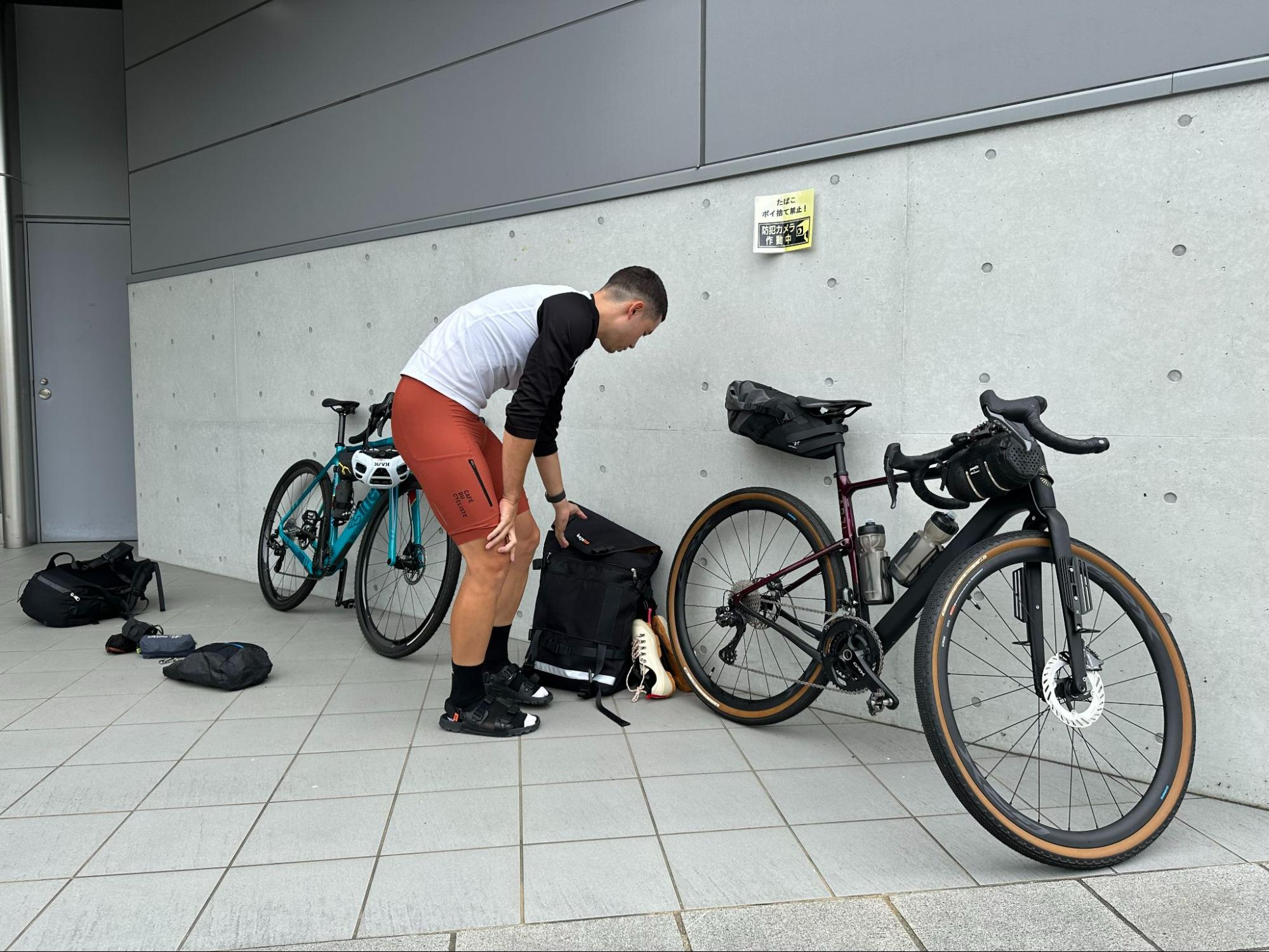
First, we assembled our bicycles at Iiyama station, and got ready by putting the minimum amount of luggage, including a change of clothes for one night, in our saddlebags. Luggage not needed for the ride was stored in coin lockers at the station (500 yen/day).

Shin’etsu Shizenkyo Activity Center
Before starting the tour, we stopped by the Shin’etsu Shizenkyo Activity Center located at Iiyama Station. In addition to providing information on nearby activities and outdoor activities that can be enjoyed in each season, spring, summer, fall, and winter, the center also offers a variety of tours and consultation on cycling courses to suit your riding style.
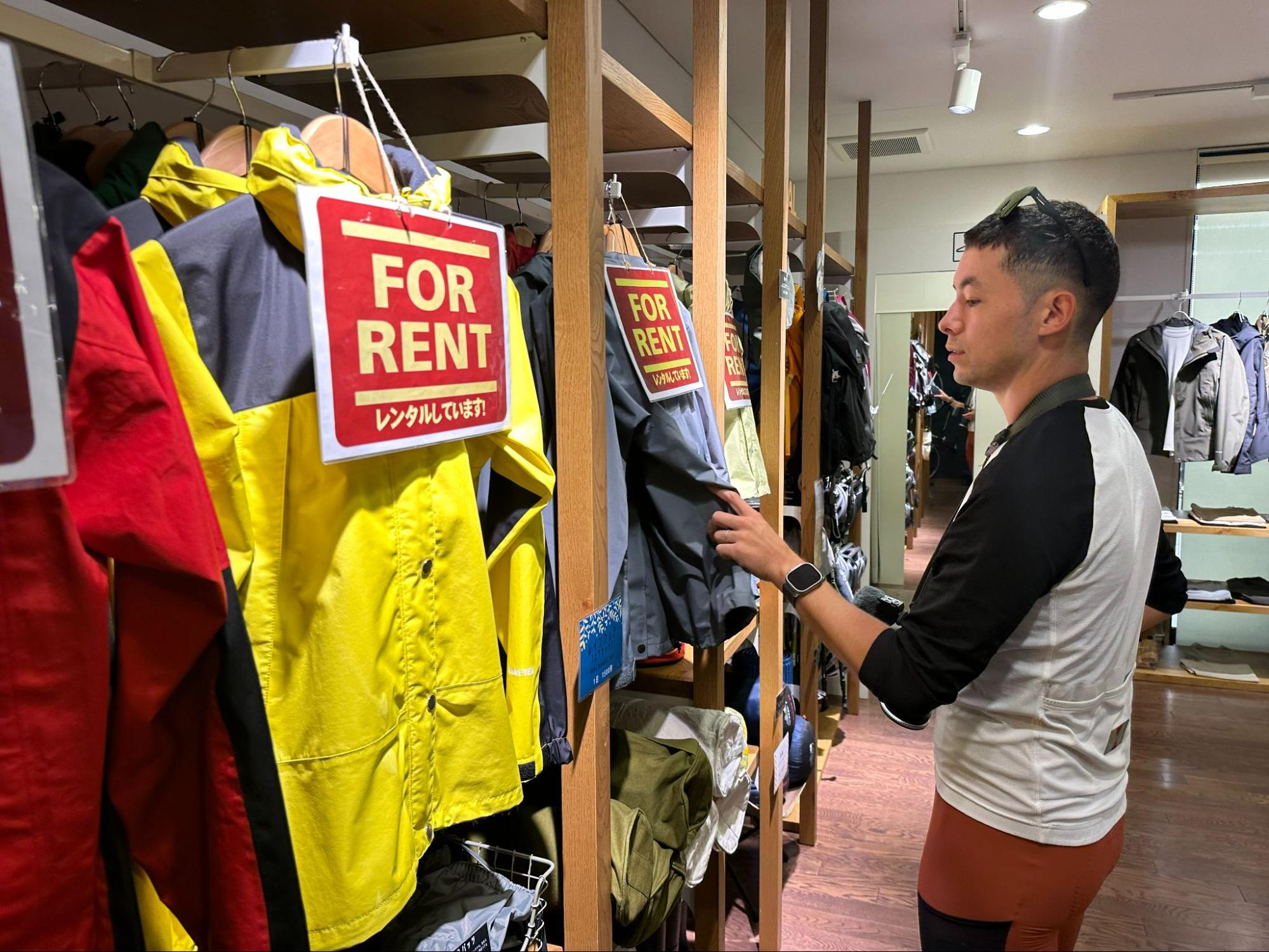
Also, a wide variety of bicycles can be rented here, from road bikes to electric gravel bikes and children's bikes. Outdoor gear such as trekking equipment can also be rented. Those who want to start biking or trekking can also simply visit the facility empty-handed.
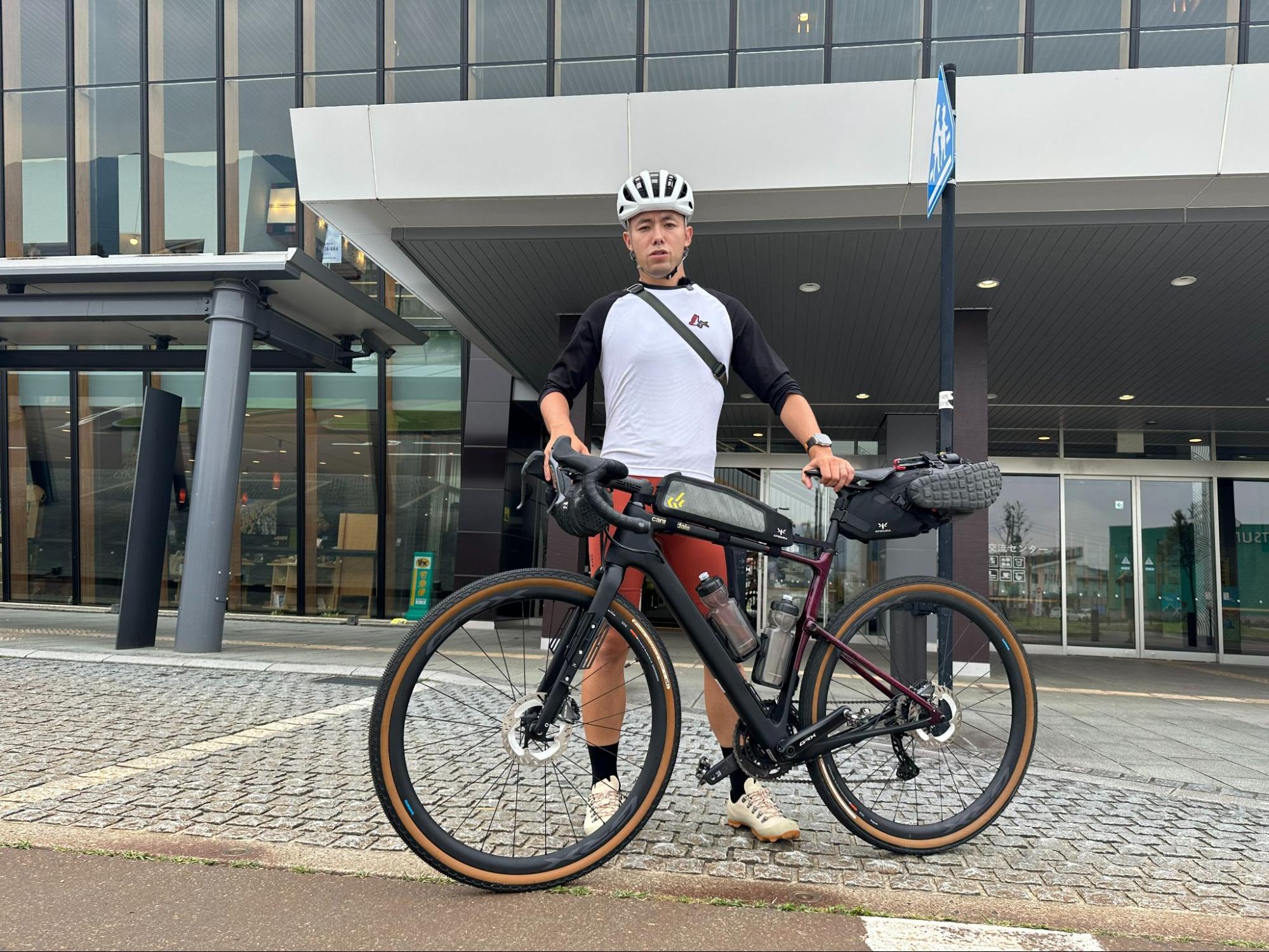
START
The weather was cloudy. The temperature in front of Iiyama station was 25°C, about 5° cooler than Tokyo. We were now heading for Shibu Toge at an altitude of 2,000 meters, and with high expectations for how cool the pass would be, we were off!
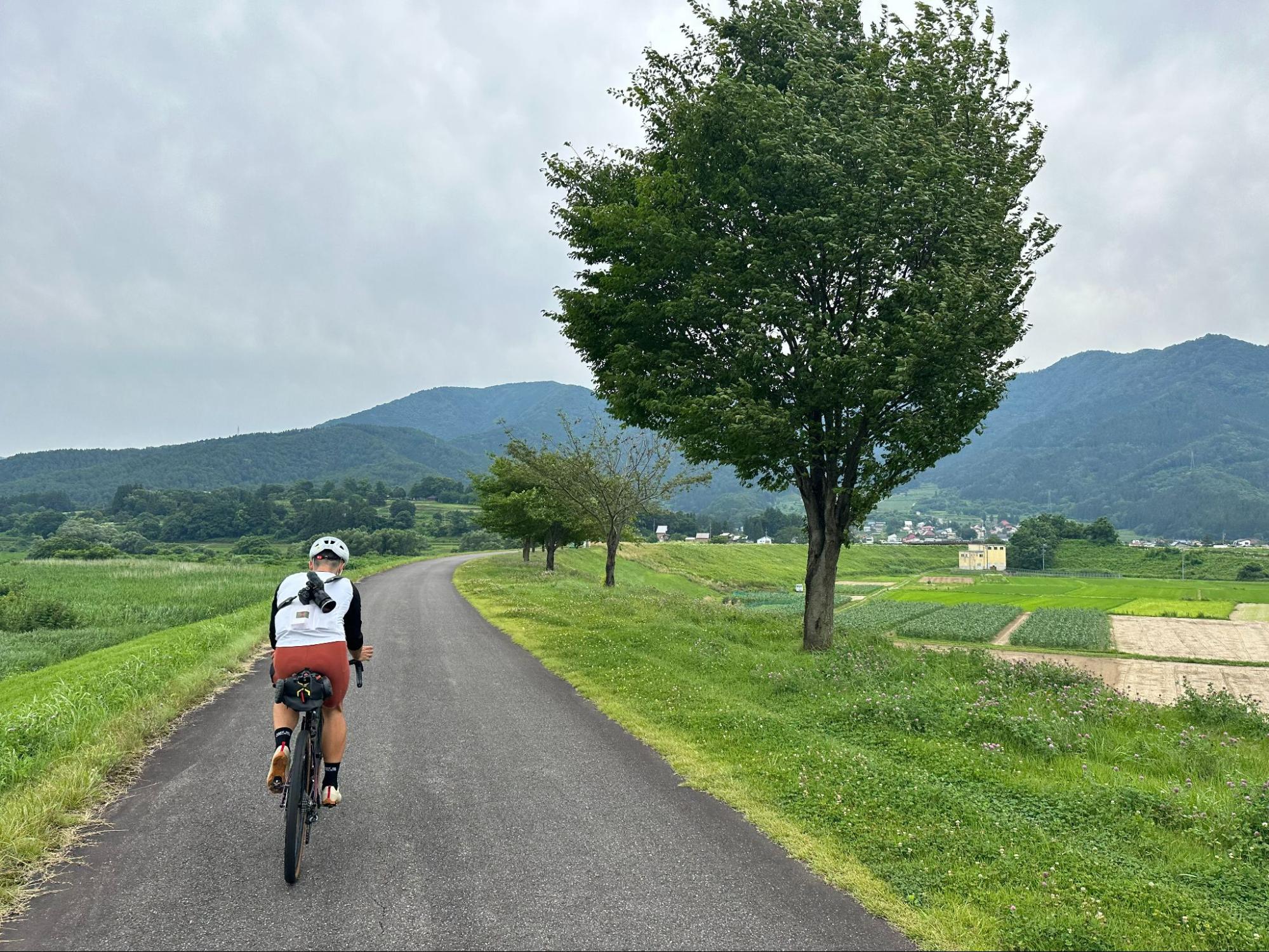
Cycling road along the Chikuma River
The road heads north along the embankment of the Chikuma River, which flows through the center of Iiyama City, to the Nagasaka Gondola Lift at the Nozawa Onsen Ski Resort, about 14km away. The fields spread out on both sides of the embankment, behind which the Shiga Kogen to the east and the Sekida mountain range to the west.
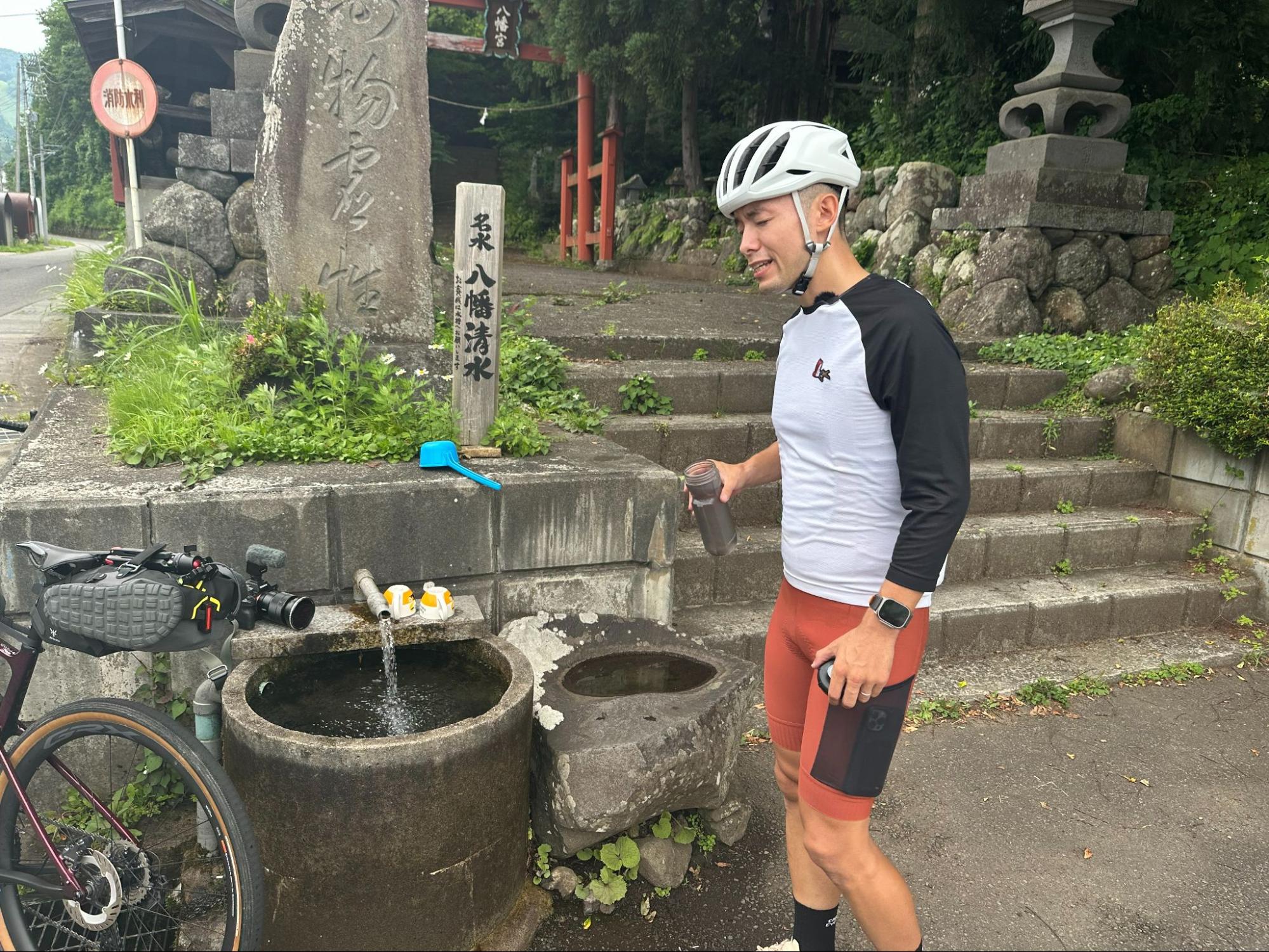
After completing the route along the Chikuma River, a 5km slope continues toward the ski resort. Halfway up the slope, we found a sign that reads "Famous Water: Hachiman Shimizu." We gratefully replenish our fluids with the spring water. The water from the melting snow is cold and tasty.
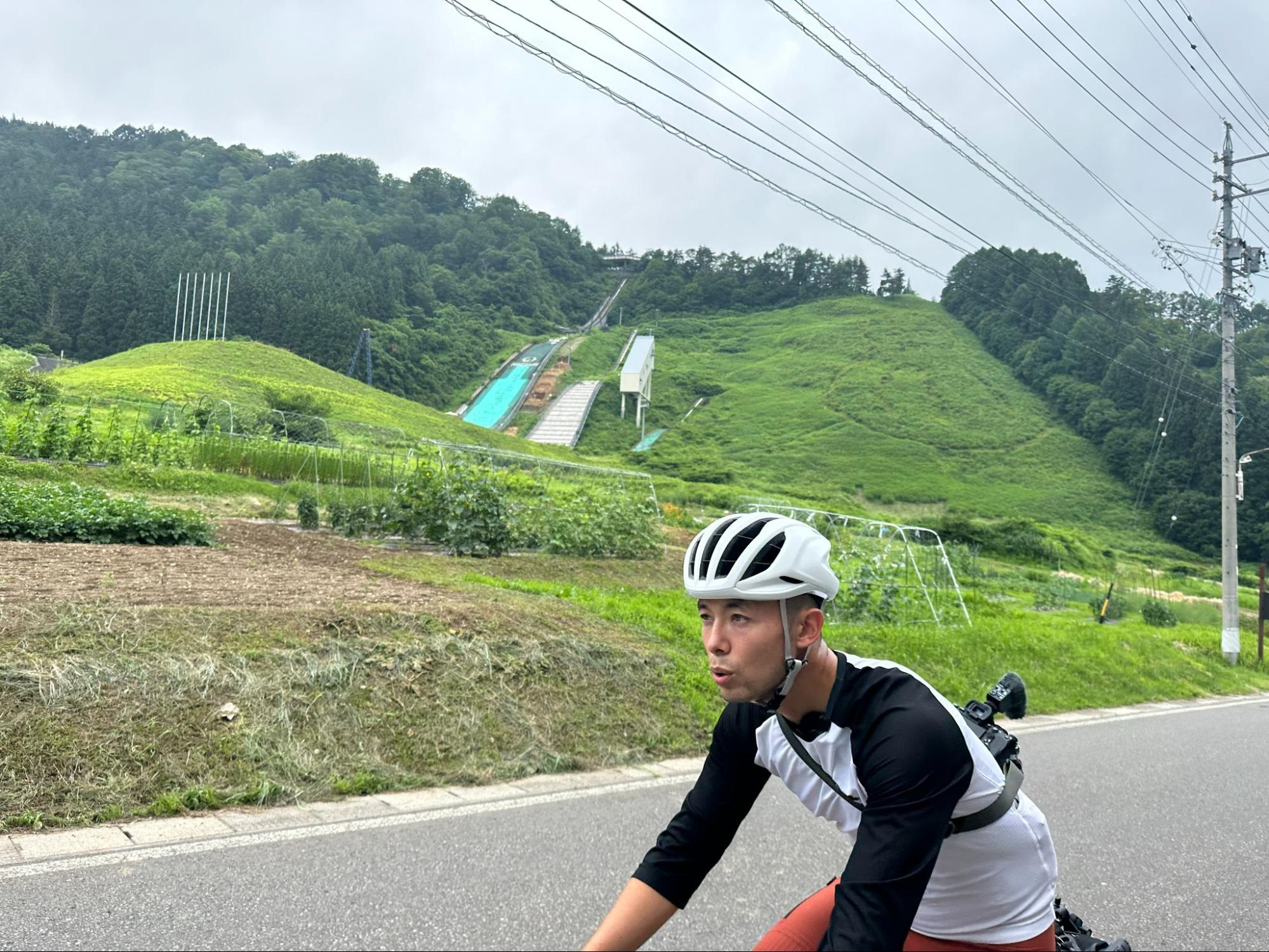
Ski jumps can be seen on the mountainside in front of the ski resort. Nozawaonsen Village has produced many Winter Olympic athletes, and has the highest ratio of Olympic athletes to all residents in Japan. The village as a whole has an environment conducive to the development of ski athletes.
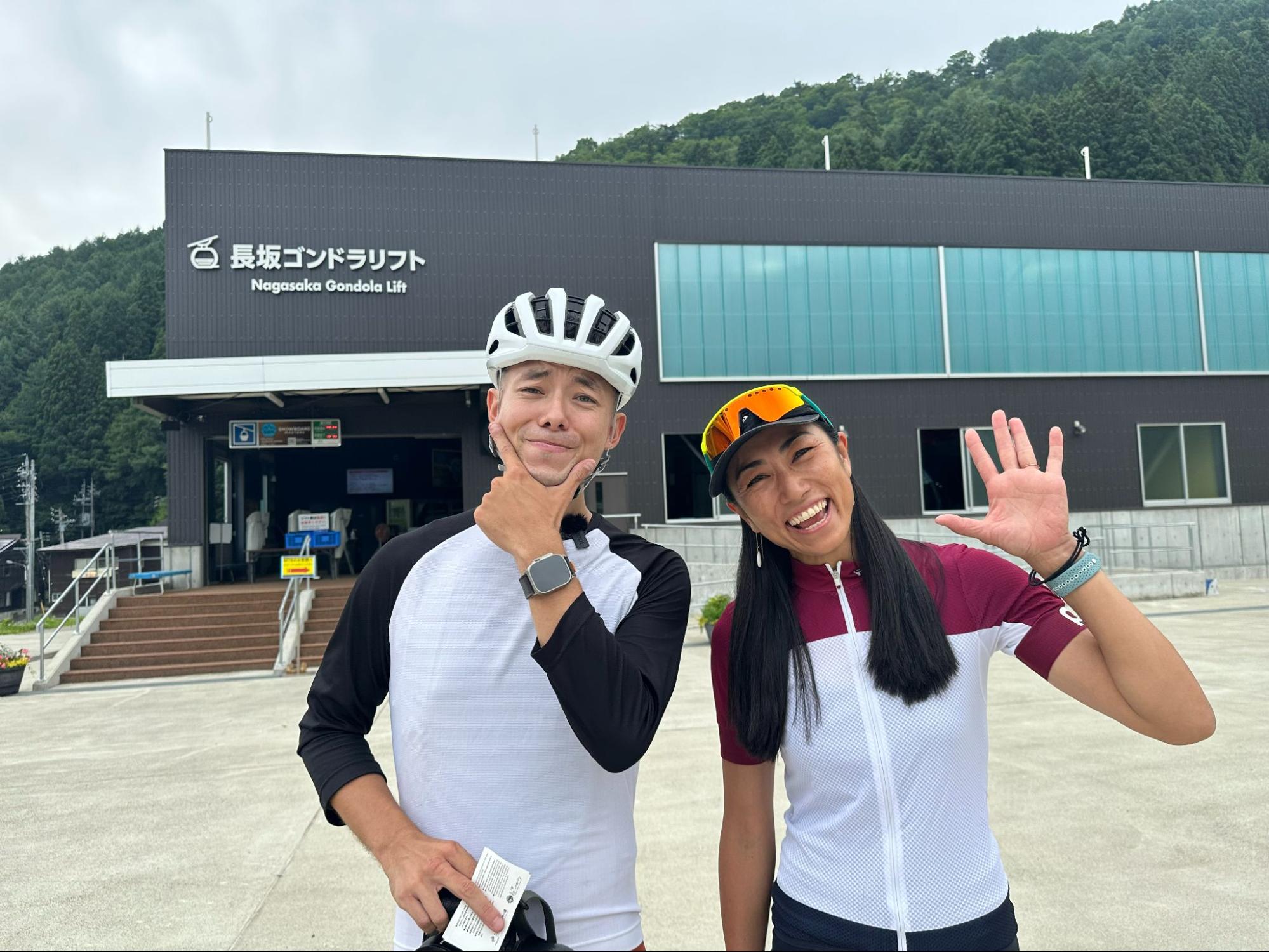
Meet up with a support rider
Nagasaka Gondola Lift / Nagasaka Station
We arrived at the Nagasaka gondola lift at Nozawaonsen Ski Resort about 30 minutes later than originally scheduled, due to some hills that were harder than expected. Waiting for us here was Discover Ride's first female support rider, Manami Ueno. Manami is an Olympian who competed in the Sochi Winter Olympics in the freestyle ski halfpipe event. Kenta is excited to have a reassuring support rider.
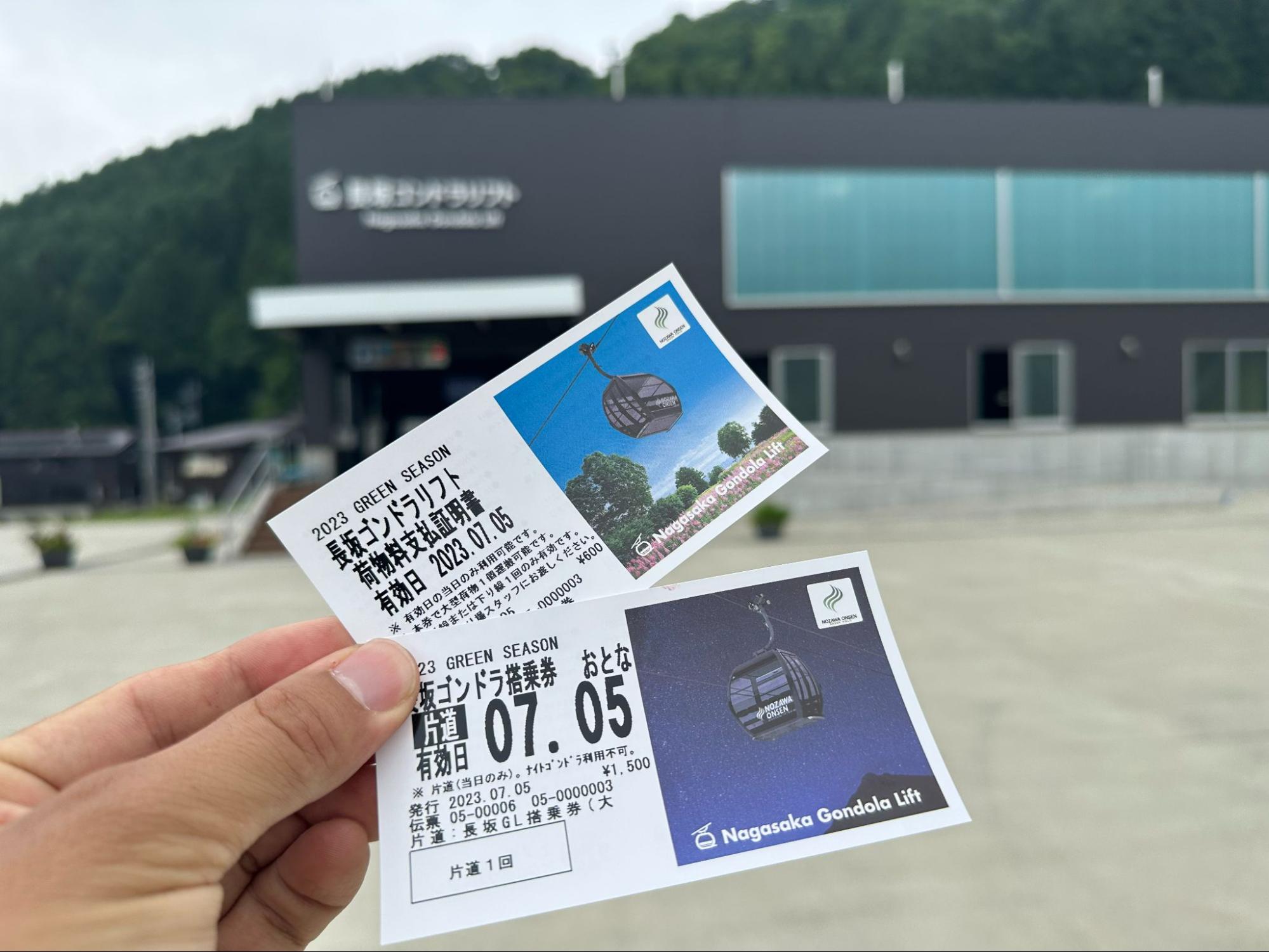
I immediately purchased a gondola lift ticket. Adults pay 1,500 yen one way. For bicycles, pay 600 yen as a separate luggage fee.
Incidentally, the gondola will be in operation during the following period
2023/7/1 (Sat) - 10/29 (Sun)
Closed on Tuesdays, Wednesdays, and Thursdays between 8/29 (Tue.) and 9/28 (Thu.)
Operating hours: 9:00 - 16:00 (16:30 on the down line)
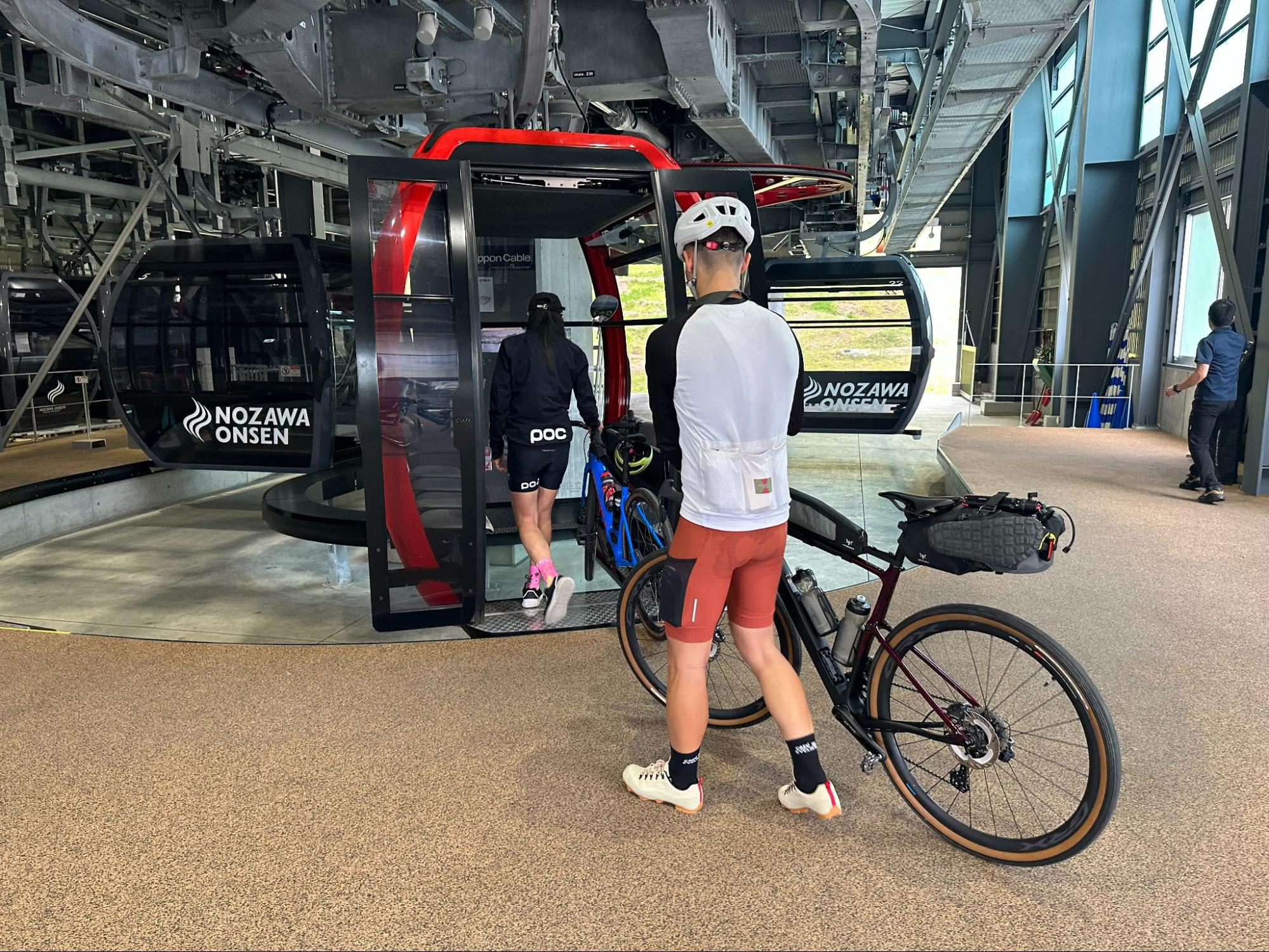
Going up by gondola
This is the world's most advanced gondola, which was replaced in 2020. It takes about 8 minutes to reach Yamabiko Station at the top, a distance of about 3km (789m elevation gain). The speed of the gondola slows down when you board, so you can put your bicycle on the gondola without being in a hurry. Tsucchi and I were admittedly a bit nervous.
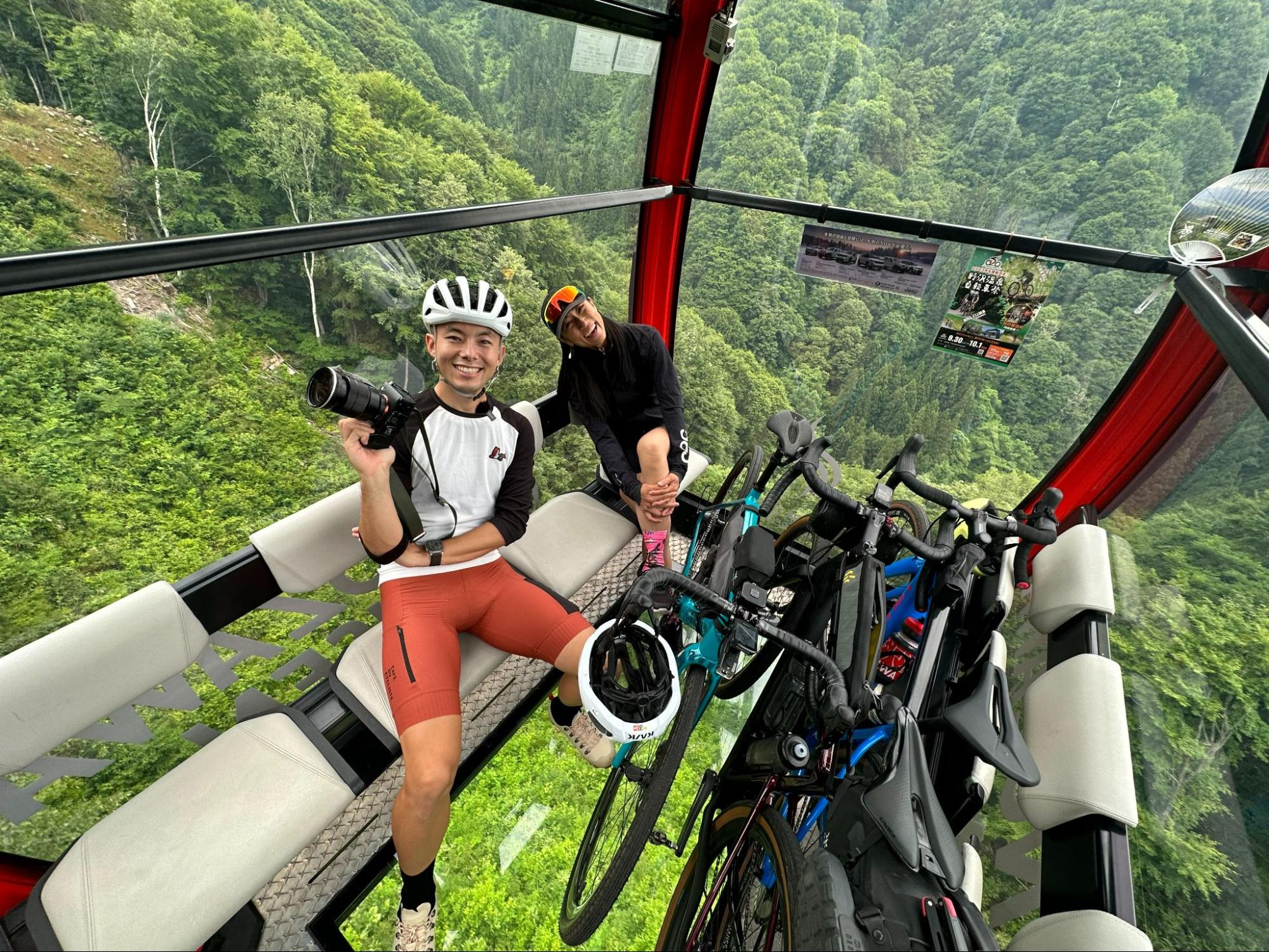
Inside the gondolas, which have a spectacular view with all-glass walls, they are comfortable and quiet with well cushioned leather seats. Incidentally, the gondolas which we boarded were the only two out of a total of 80 gondolas with a glass floor!
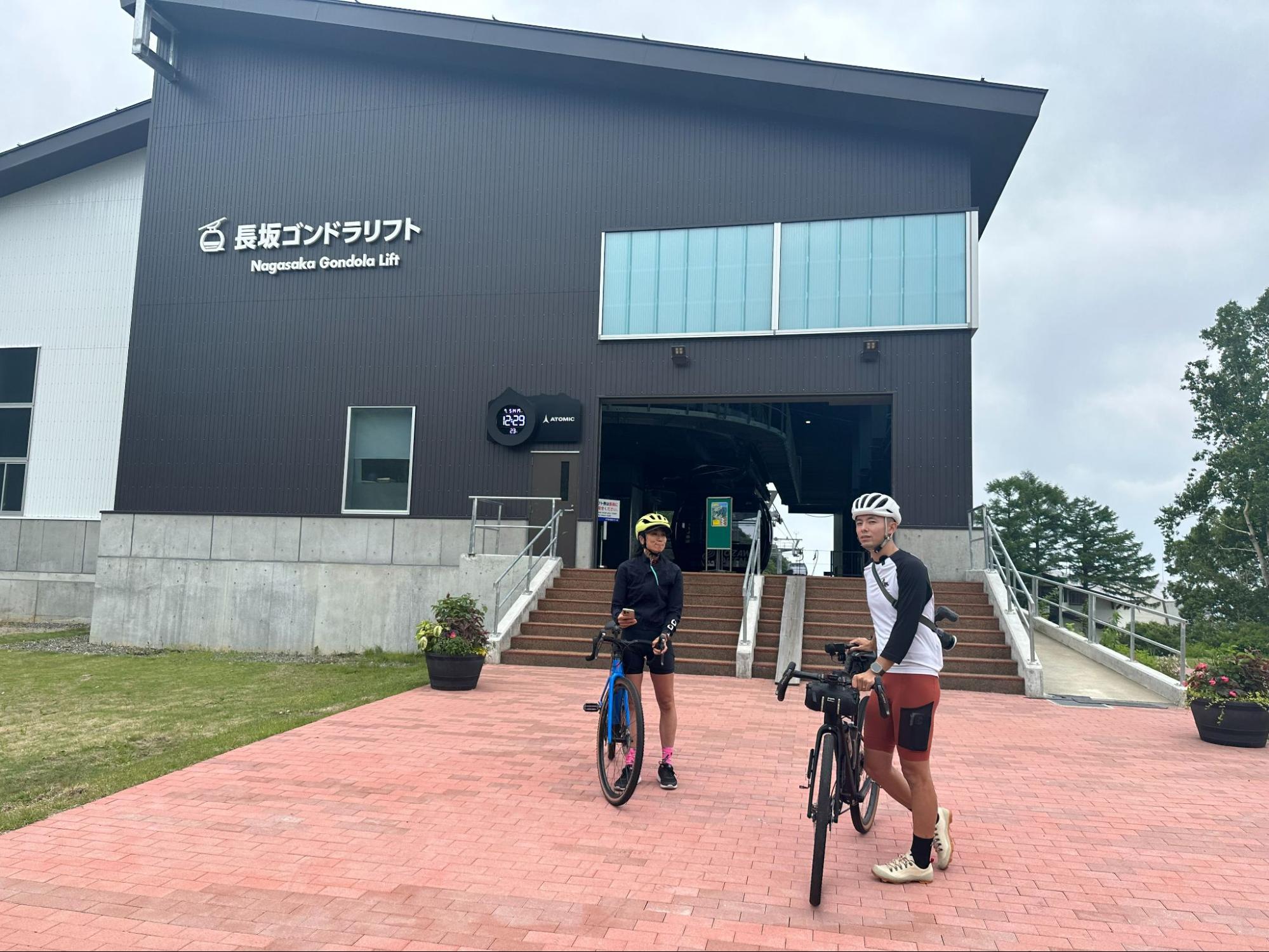
Nagasaka Gondola Lift/Yamabiko Station
It takes about 8 minutes to reach Yamabiko Station at the top of Nagasaka Gondola. Located at an altitude of 1,400 meters, the temperature is approximately 20°C. A windbreaker is required even in summer.
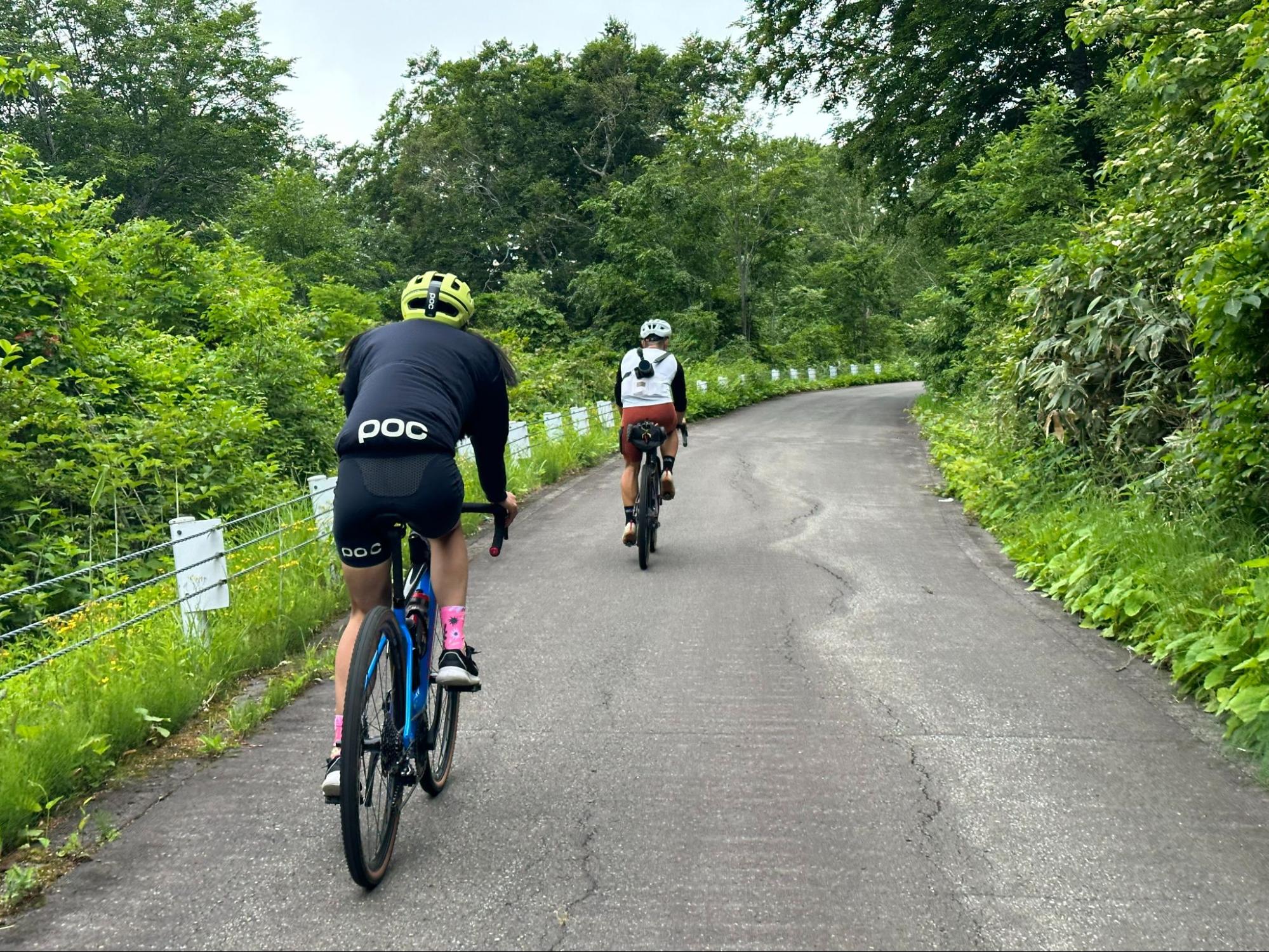
After exiting the gondola lift, the ride resumes on Prefectural Route 502 toward Shiga Kogen.
The ride was challenging due to repeated ups and downs. Traffic was fairly light and we did not pass a single car on this day, making it an easy ride. Manami-san, who was riding an e-bike, encouraged Tsucchi and I, when we slowed down on the hills.
Prefectural Route 502 and National Route 292 leading to Shibu Toge are closed during the winter season.
(Click here for reference site).
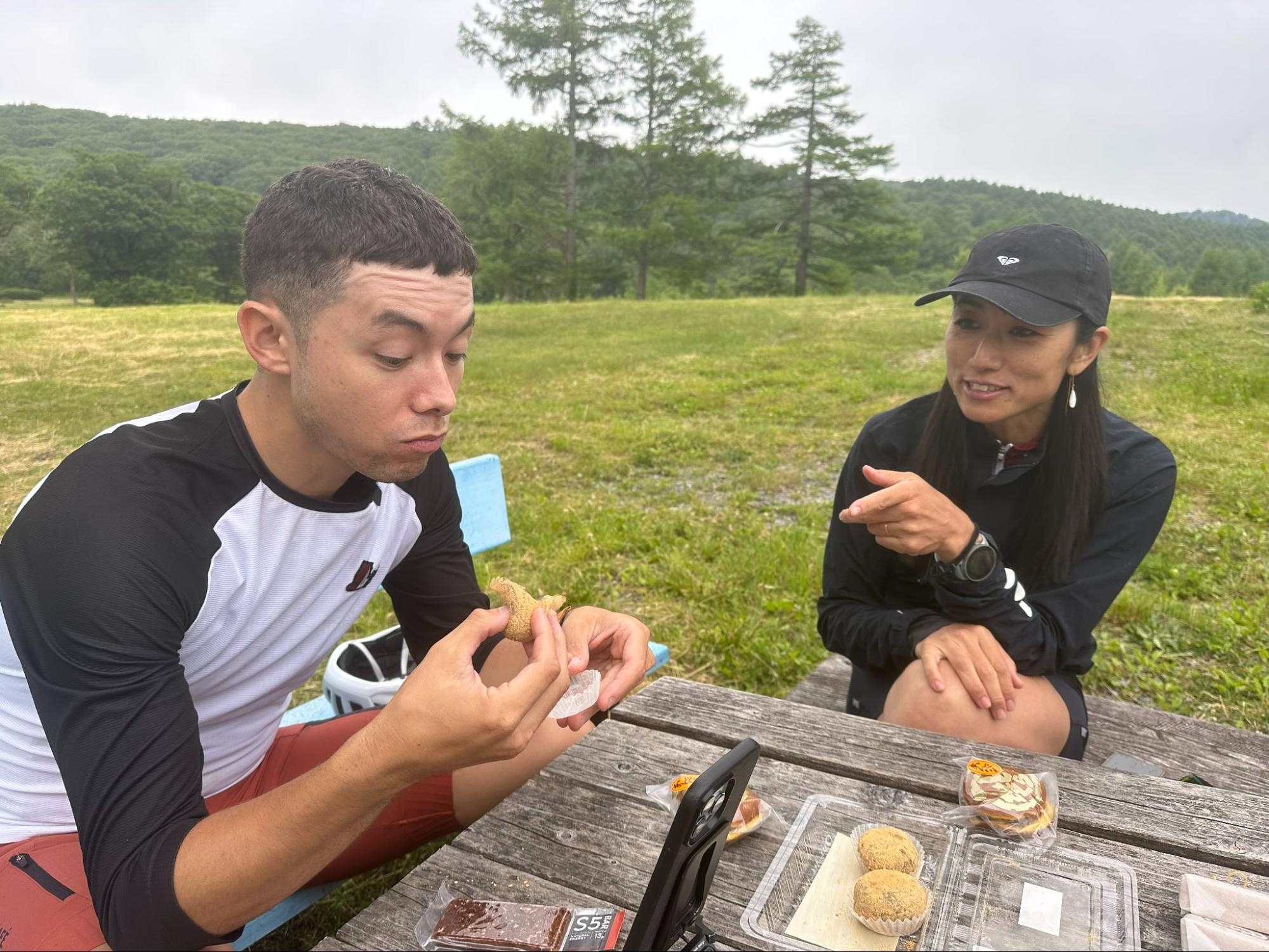
Rest at a campsite on the highland
Kaya-no-daira Highland Campsite
After driving about 20km, we arrived at Kaya-no-daira Kogen Campsite. Located on the north side of Shiga Kogen, this campground is rich in nature, with a virgin forest of beech trees. Incidentally, although there are toilets, there are no stores or vending machines, so please be careful when using them. Here, we were served Japanese sweets from the famous local store "Daikokuya," a gift from Manami-san. All of them were delicious, but the seasonal "Warabimochi" was the best. Unlike ordinary warabimochi, the fresh mochi is filled with anko (red bean paste).
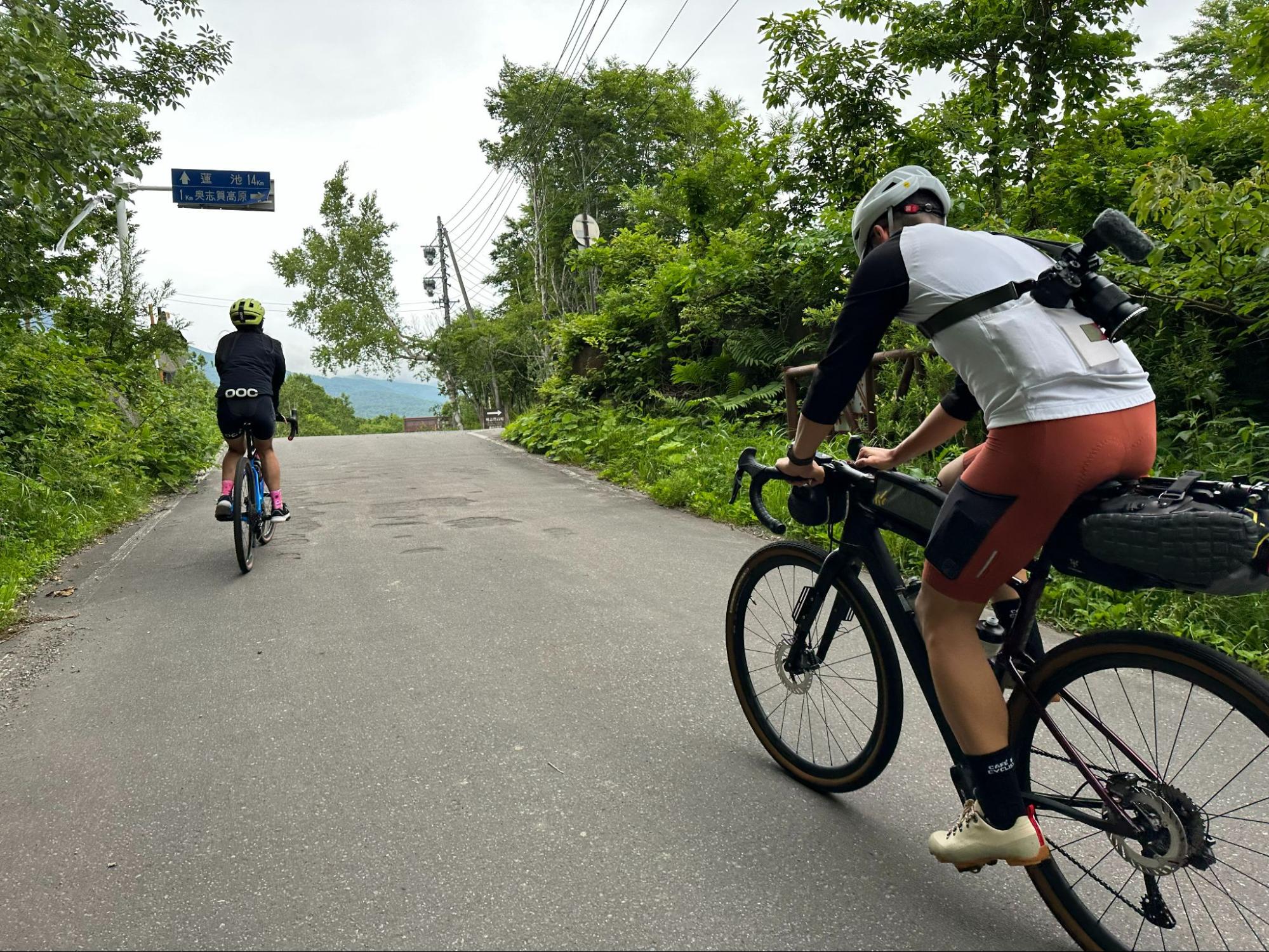
After leaving Kaya-no-daira Kogen Campsite, we again drove on Prefectural Route 502 with Manami-san leading the way. In fact, we were about an hour behind our original schedule at this point, due to the time required for filming and other activities.
We hurried to the lunch spot "Yamanouchi Taishoken," but as it was closed at 3:00 p.m., we had no choice but to get into the support vehicle 10km before and warp to the lunch spot.
*Because there were more minor climbs than expected, we could have (and should have) enjoyed the ride more leisurely if we had departed about 1.5 hours earlier.
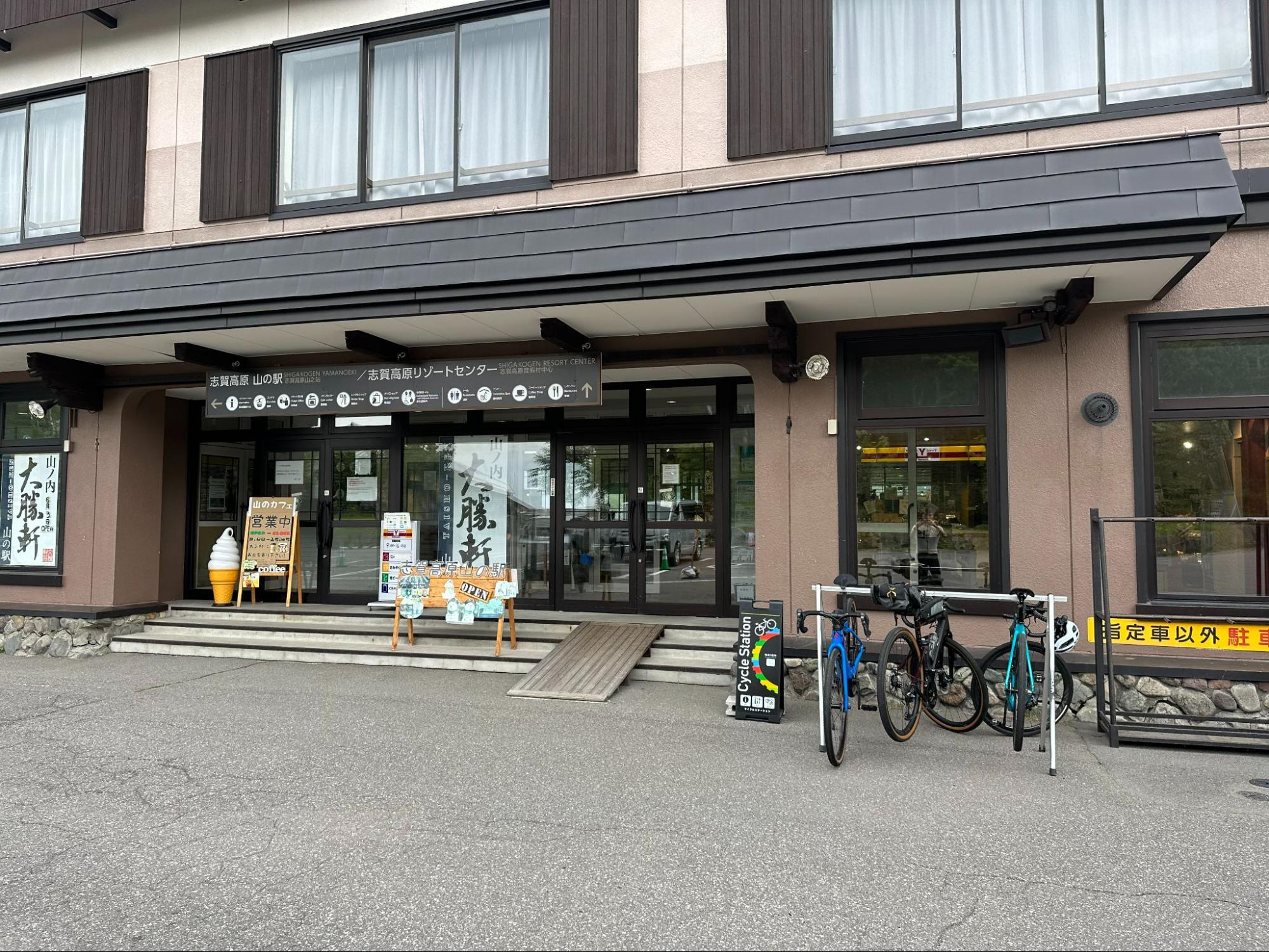
Ramen Break at Mountain Station
Shiga Kogen Mountain Station
Traveling by support car, we arrived at Shiga Kogen Yama-no-Eki Mountain Station, where the lunch spot "Yamanouchi Taishoken" is located. Inside the facility, there are restrooms, cafés, and stores, so you can spend some time relaxing.

Yamanouchi Taishoken
Lunch was at Yamanouchi Taishoken, famous for its tsukemen (tsukemen noodles). The town of Yamanouchi in Nagano Prefecture is actually the birthplace of Kazuo Yamagishi, the founder of Taishoken. Since we were running in cold temperatures, we ordered warm chashu-men noodles. The generous portion of noodles and chashu pork recharged my energy for the Shibu Toge.
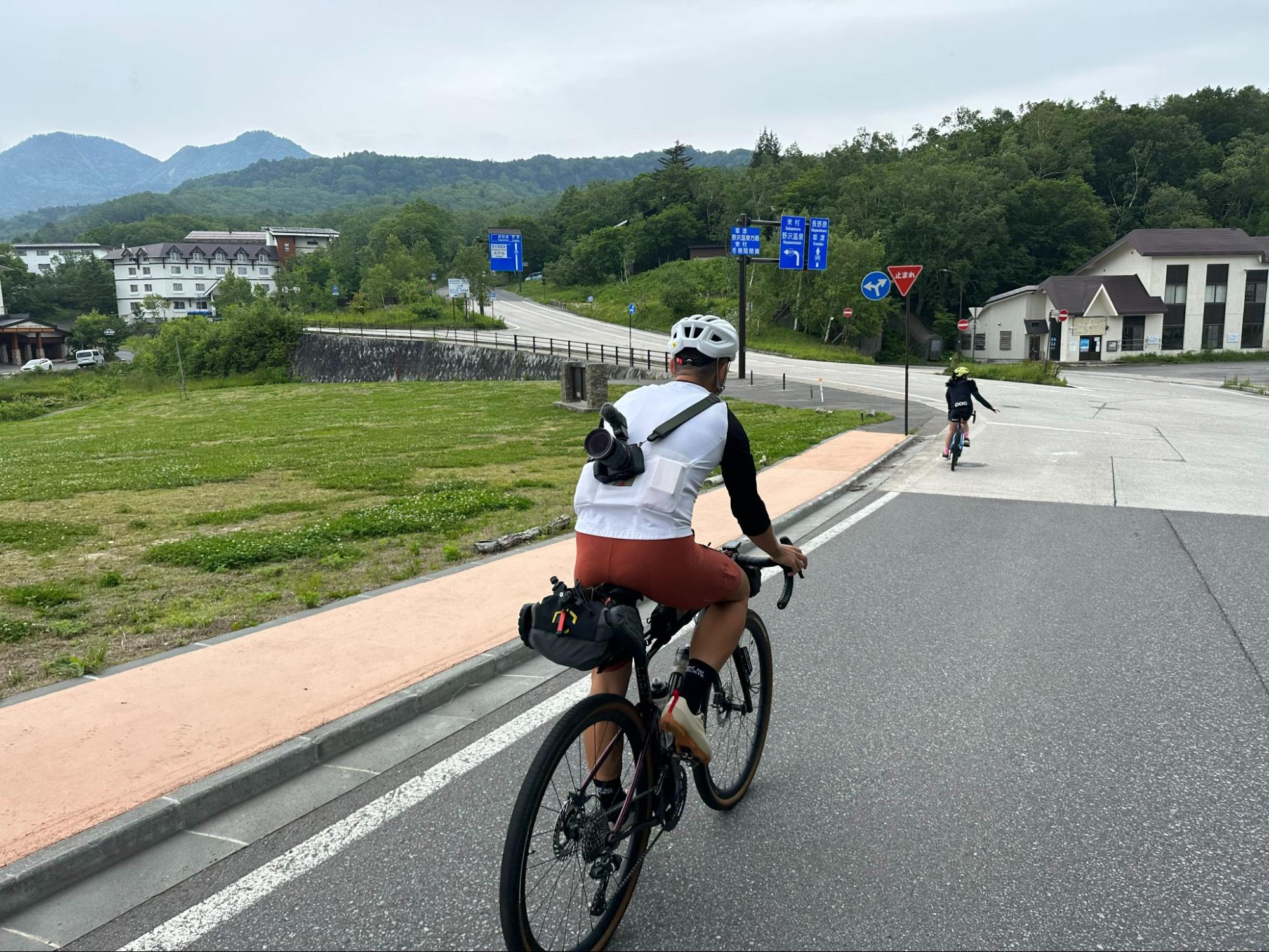
After a late lunch, the ride resumes. Soon after leaving the mountain station, we hit Route 292, which leads to Shibu Toge. The route is quite challenging even up to this point. Depending on one's riding ability, one could continue down Route 292 to Yudanaka. The group continued up Route 292 to Shibu Toge, about 13km away, as originally planned.
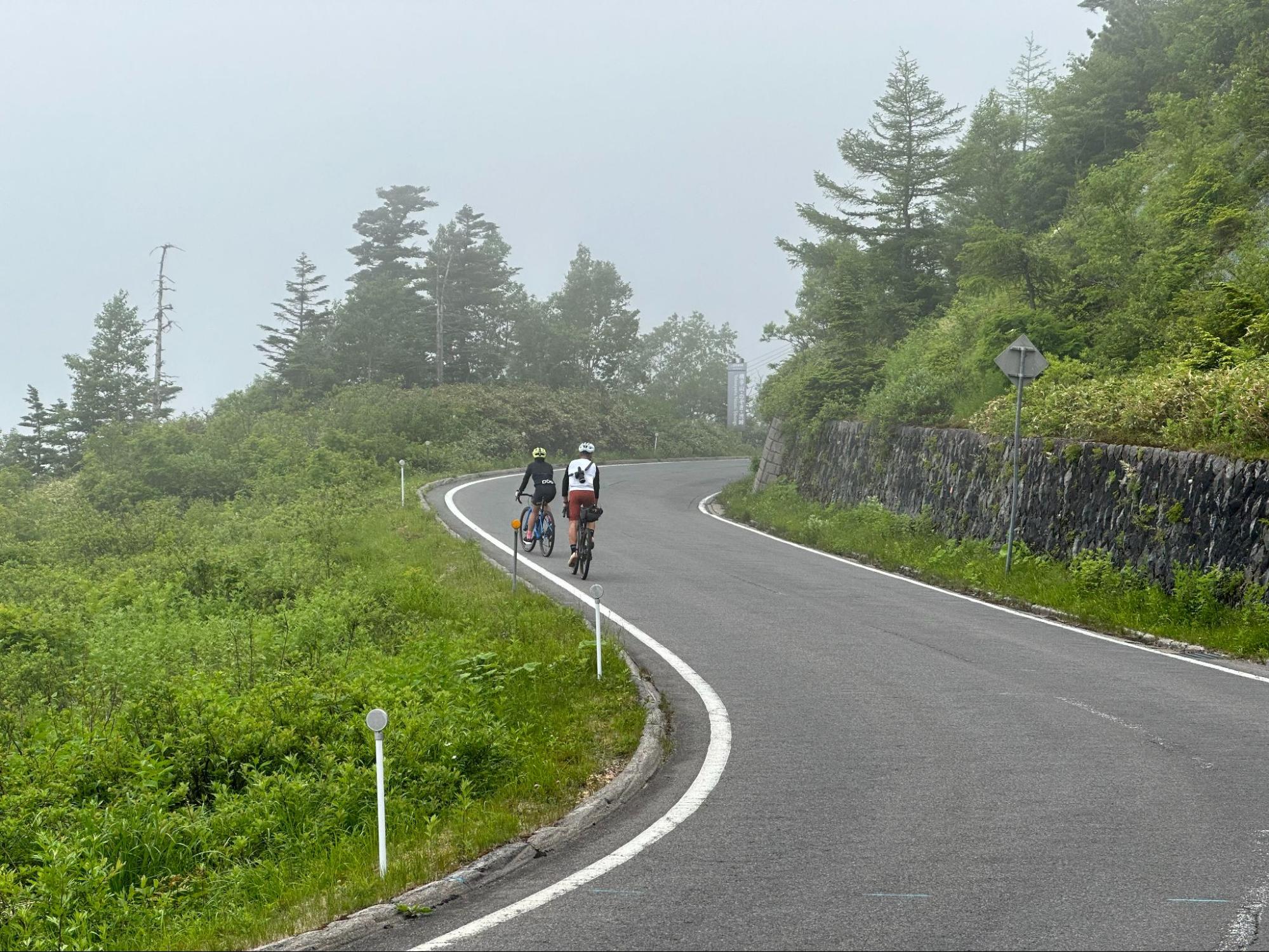
As we were climbing the hill, I felt I was having difficulty keeping up my pace. Tsucchi, who is usually left behind on uphill slopes, took this opportunity to get ahead, I bet he was so happy with himself!. It was frustrating feeling the fatigue more than I normally do.

As we were climbing the hill, I felt I was having difficulty keeping up my pace. Tsucchi, who is usually left behind on uphill slopes, took this opportunity to get ahead, I bet he was so happy with himself!. It was frustrating feeling the fatigue more than I normally do.
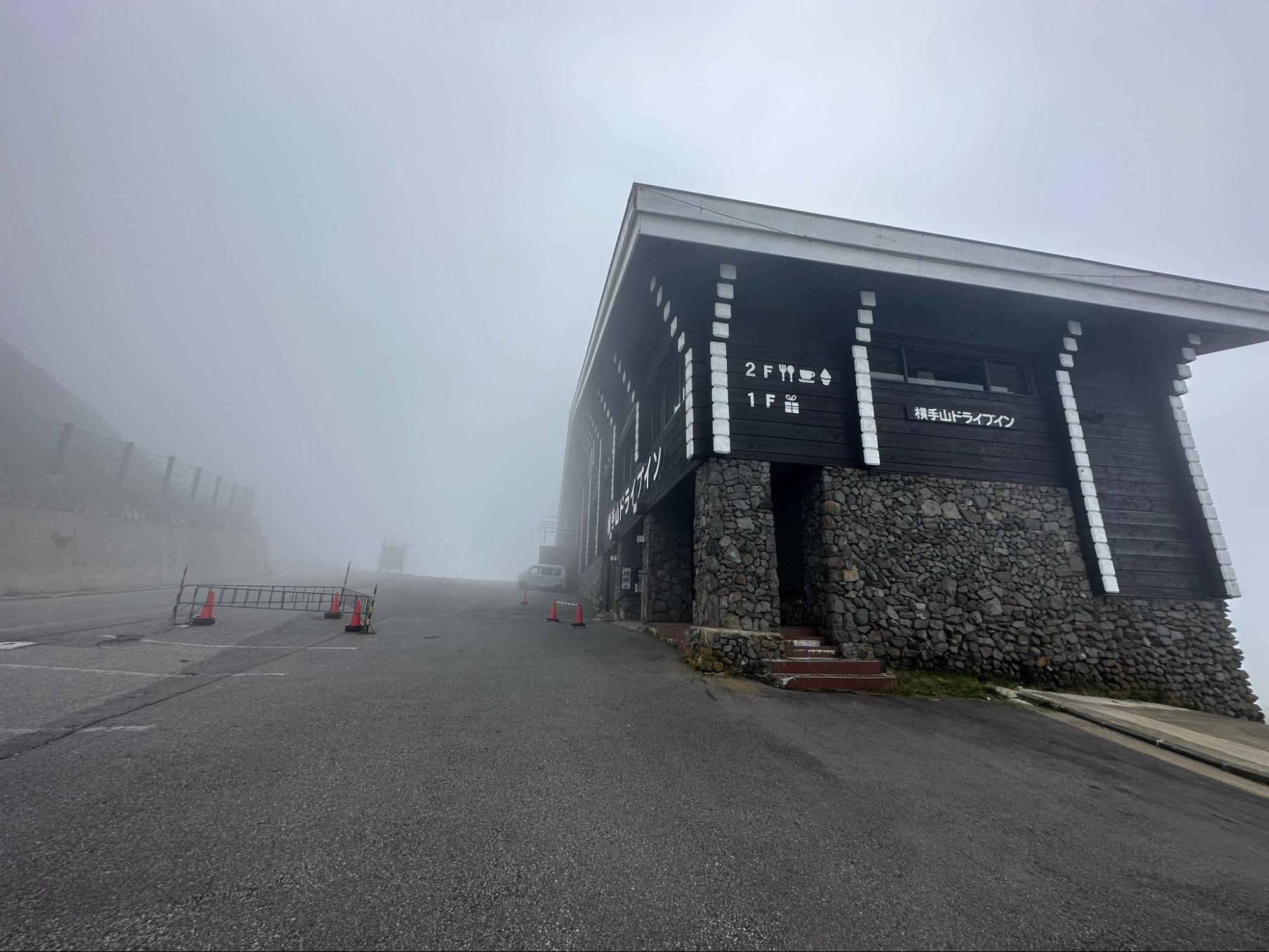
Ride suspended due to deteriorating weather conditions.
As the elevation increased, the visibility became worse and it was deemed unsafe to continue biking. The ride was halted at the Yokoteyama Drive-in, 2km before the Shibu Toge. At this point, the temperature had dropped below 10°C.
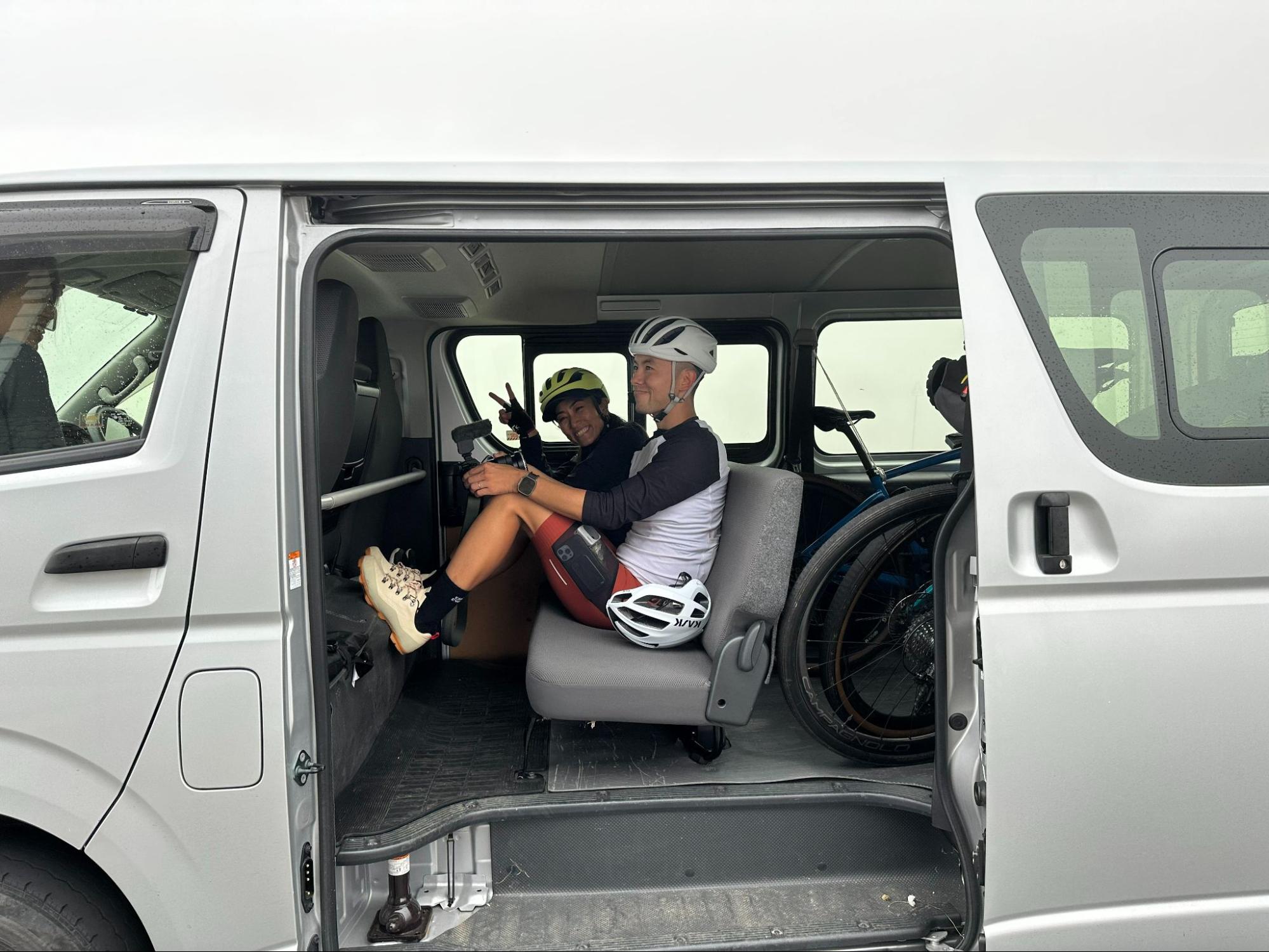
I was relieved after loading my bike into the support car. Since we had come all this way, we took the support car to Shibu Toge. Normally, a jacket is a must even in summer because the weather can change suddenly, but in fact, I made the painful mistake of not bringing a jacket because Iwas caught off guard by the summer weather.
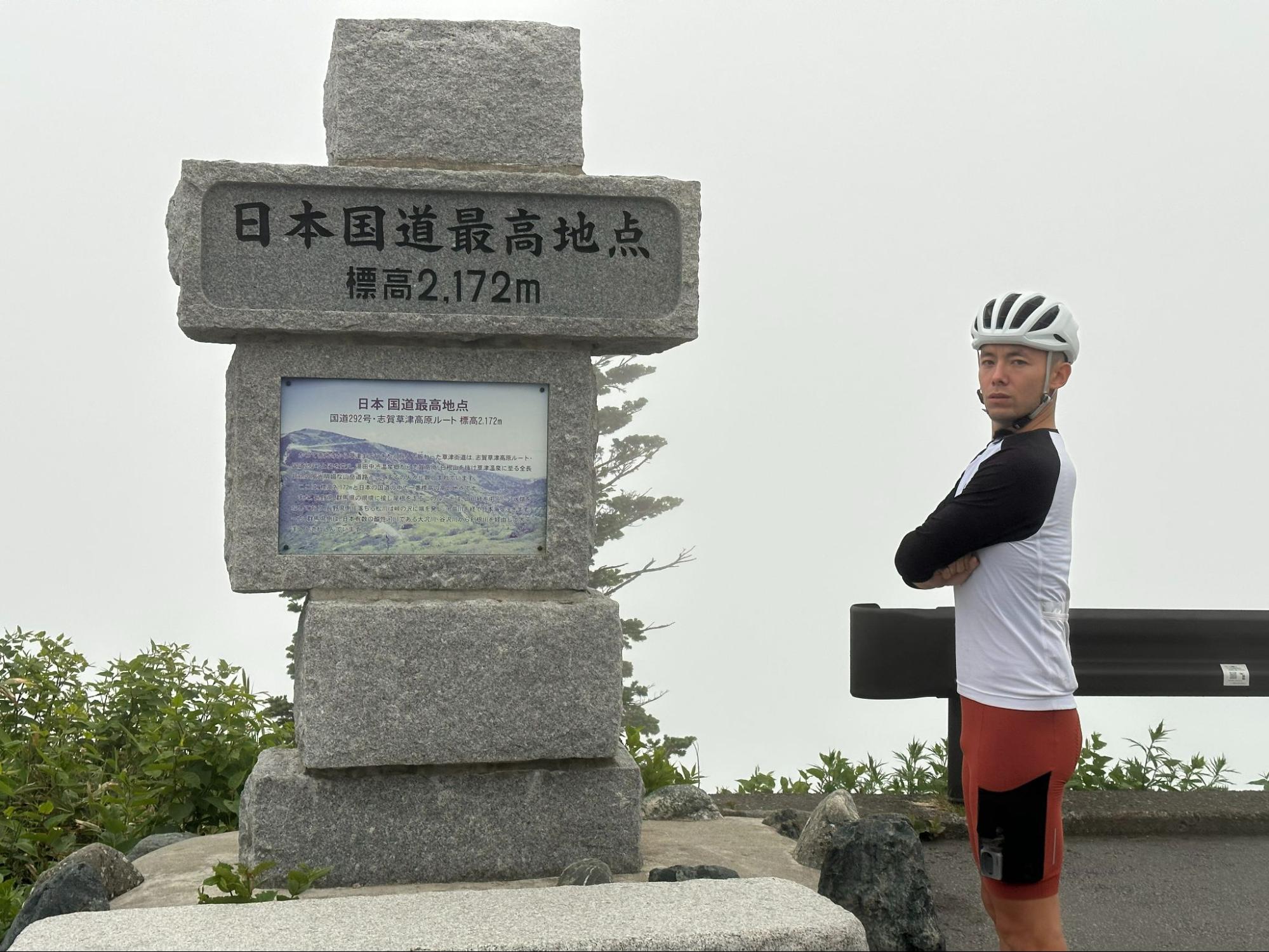
Commemorative photo at Shibu Toge
Monument marking the highest point of a national highway in Japan
A support vehicle took us to Shibu Toge, located on the border between Gunma and Nagano prefectures. It is the highest point on a national highway in Japan. If the weather was clear, we would have a panoramic view of the Yoshigadaira wetlands below us, but unfortunately there was no visibility today. We witnessed the changeable weather at high altitude.
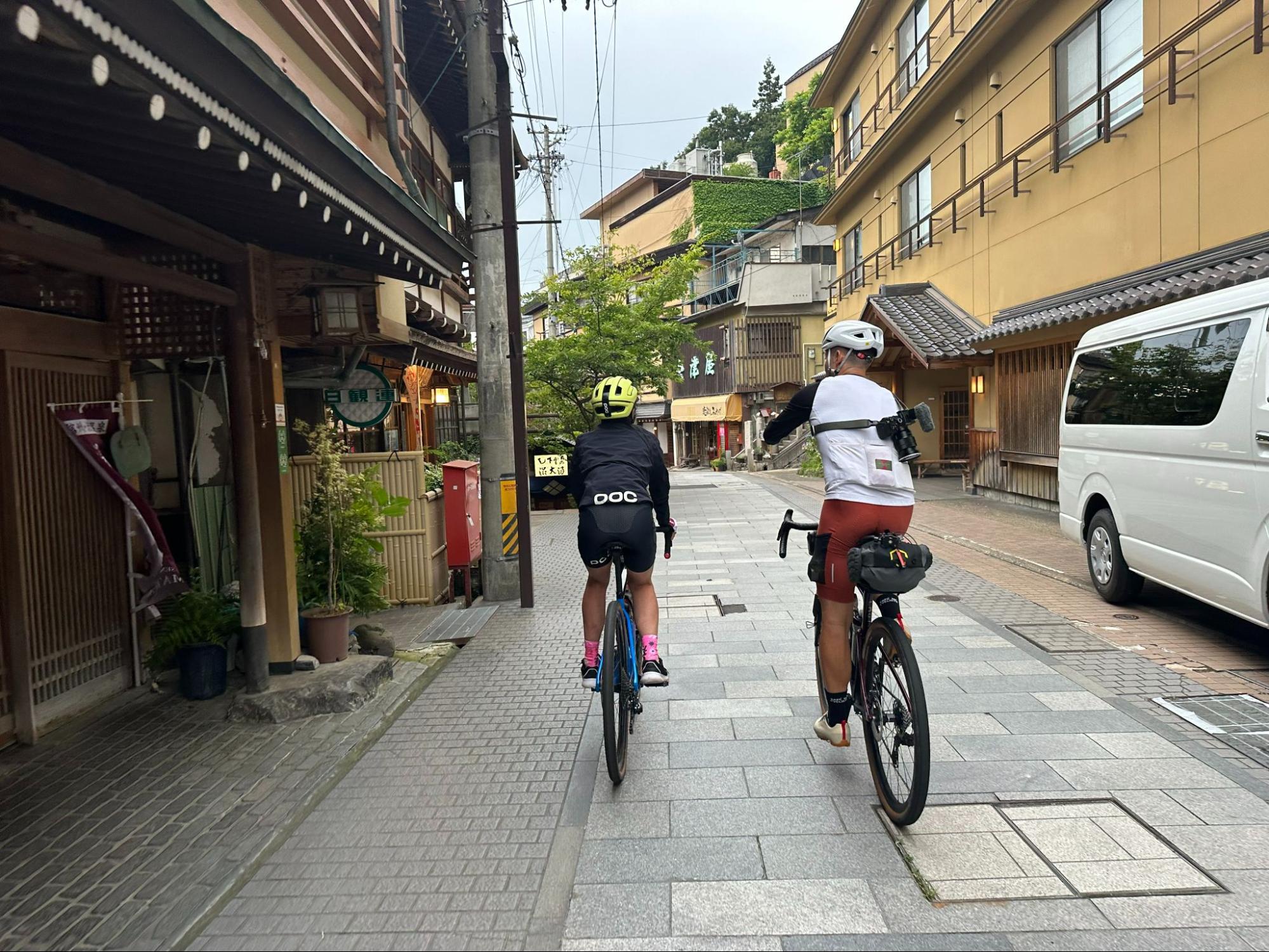
The fog cleared and the visibility was good. We descended by support car to Shiga Kogen Mountain Station. From there, we resumed our ride and headed down Route 292 all the way to Yudanaka Onsen Hot Spring.
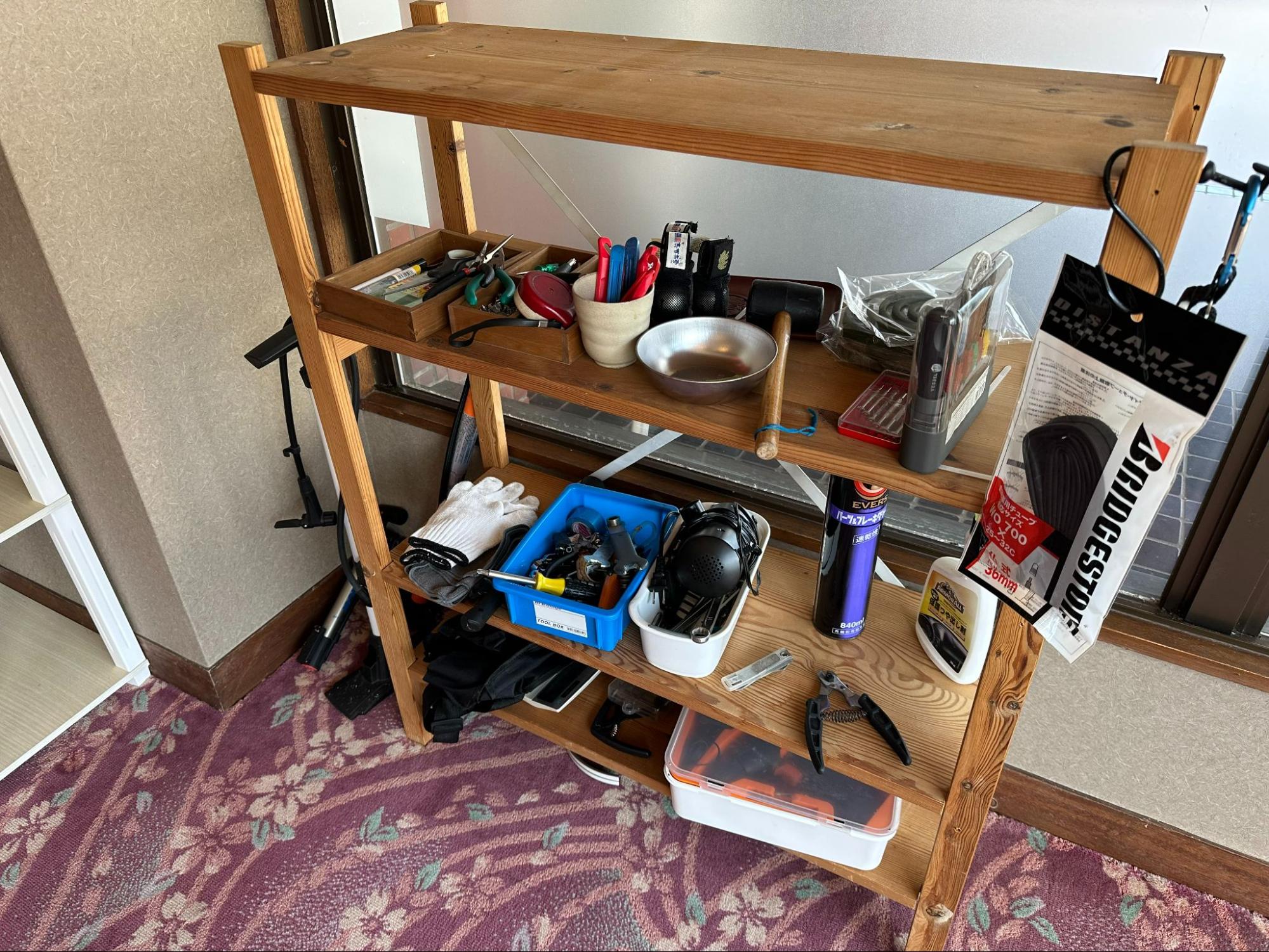
Arrival at Yudanaka Onsen Hotel
HOTEL & RESORT Kiyomizu Bozanso *Currently closed as of Nov 2024
We have arrived at today's inn, "HOTEL & RESORT Kiyomizu Bozanso." The hotel is very cyclist-friendly, with laundry facilities as well as maintenance tools.
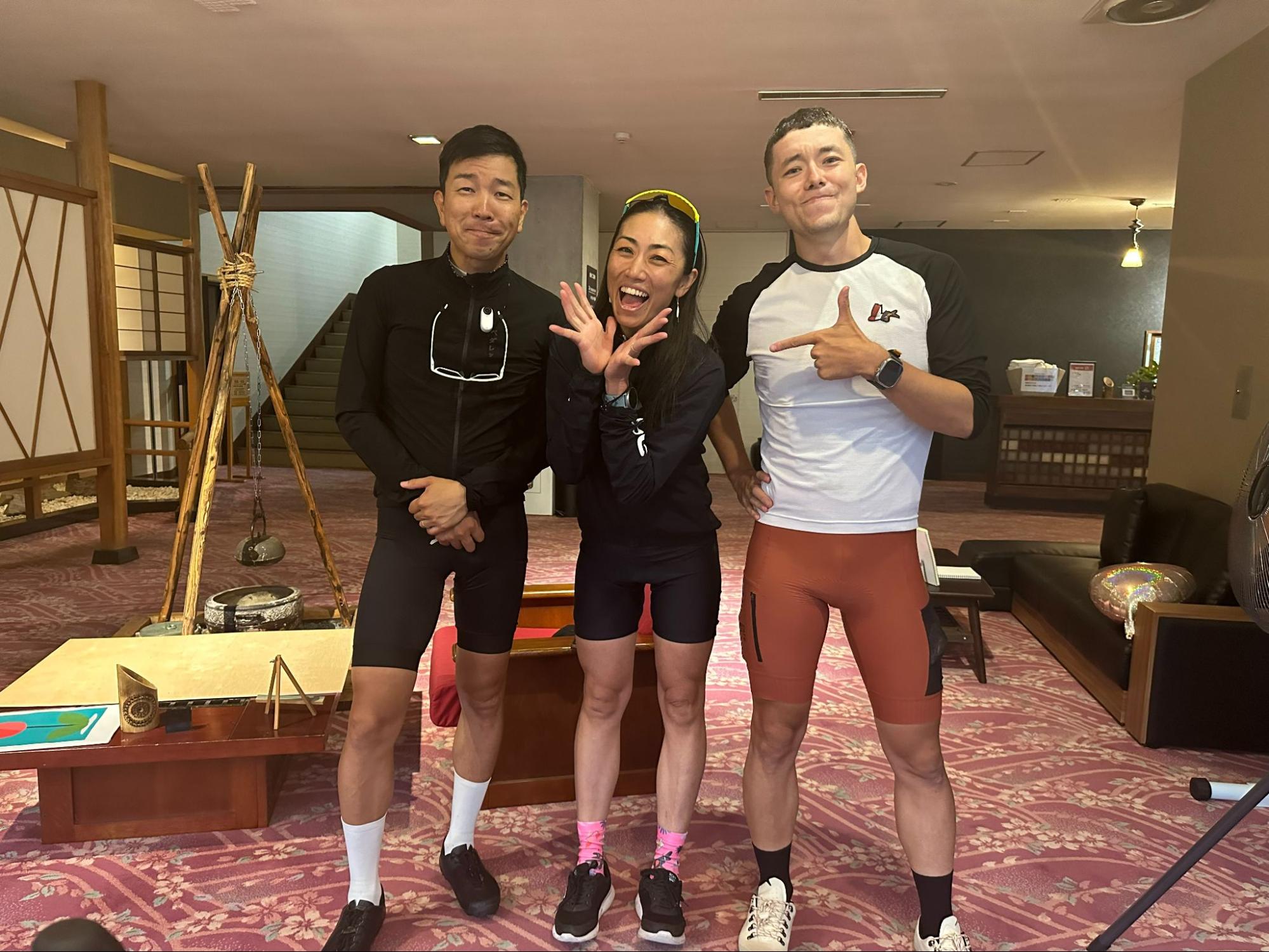
We also said goodbye to our support rider Manami-san at the hotel. She led the way as a pacemaker on the uphills, and gave us solid support by inspiring us when we felt our hearts were about to give way. Anyone would feel uneasy when the fog deepens and the uphill continues for a long time. Having a powerful support rider who was familiar with the local weather changes made me feel at ease.

A Blissful Cup of Local Shiga Kogen Beer
We toasted to our customary reward with a local craft beer, Shiga Kogen. It was the toughest uphill ride of the Discover Ride, and the beer tasted much better than on the previous day's ride. It was hard to believe that we left Tokyo this morning. We went to bed early to relieve our fatigue in the hotel's hot spring in preparation for the next day's ride.
